人生の親戚 Echo of Heaven (Relatives in Life)
Translator's background
Margaret Mitsutani was born in Pittsburgh, Pennsylvania, in 1953 and received her master's degree in comparative literature from Tokyo University in 1981. Since 1991, she has been teaching at Kyoritsu Women's University in Tokyo. Her translations of Hayashi Kyoko's stories have appeared in Manoa and Prairie Schooner; other translations include Ōe Kenzaburō's novel An Echo of Heaven, a collection of three stories by Tawada Yoko entitled The Bridegroom Was a Dog, and A Dream Like This World: One Hundred Haiku by Nagata Koi, which was co-translated by Naruto Nana.
人生の親戚 Echo of Heaven (Relatives in Life)
Echo of Heaven in its original Japanese (新潮, Volume 86, Issues 1-3, Google Books link)
人生の親戚 Echo of Heaven (Relatives in Life)
About the title
The Japanese title for this book is 人生の親戚 (Jinsei no shinseki, "Life relatives"). The meaning of this phrase is explored in the final two paragraphs of the last chapter before the "epilogue":
The phrase Marie suggested using as a title, "Parientes de la Vida"—assuming that Asao got the Spanish right and wrote it down correctly—can be translated as "relatives in life." As I interpreted it, it meant that she was proud in a modest sort of way to have been accepted by the local women as one of them a true friend who had shared in their suffering and, though not 'a blood relation, had become part of the family. ...
But then recently, one night when I couldn't sleep, I came across a passage in a paperback edition of Plutarch where he refers to sadness as an unwelcome "relative in life" that nobody ever gets rid of, no matter what situation they're in. I'm now leaning toward this view of it. ...
人生の親戚 Echo of Heaven (Relatives in Life)
Contributions by Chuck to the Jinsei Chpt 4-8 sections, general comment:
Note about page numbers: My copy of Jinsei is an uncorrected galley proof, so likely the page numbers are about 1 page off from what I have recorded here; page numbers refer to the first place these references are mentioned in these 4 chapters. Should be easy to find them.
Enjoy,
Chuck Goldhaber
— CHAPTER 1 —
人生の親戚 Echo of Heaven (Relatives in Life)
"who loved the future like a mistress" (Chpt 1, English [as keyed to Kodansha Intl, 1989] 7)
There have been men who loved the future like a mistress, and the future mixed her breath into their breath and shook her hair about them and hid them from understanding of their times. William Blake was one of these men, and if he spoke confusedly and obscurely it was because he spoke of things for whose speaking he could find no models in the world he knew.' So starts [William Butler] Yeats essay on William Blake and the Imagination.
"William Blake: A Citizen of Eternity" a web page in Theosophical Order of Service. The original can be found in The Collected Works of W. B. Yeats, Volume IV: Early Essays, "William Blake and the Imagination." It is that essay's first sentence. See: Google books preview, p 84)
人生の親戚 Echo of Heaven (Relatives in Life)
"Sukiyabashi" (Chpt 1, English 7)
Sukiyabashi Park was a place of protests. The narrator refers to a 1976 event, not the protest below. This is provided as context.
The summer of 1968 was a rehearsal for the anticipated free-for-all on 21 October, International Anti-War Day. First came the prerequisite uchi-geba, as Chūkaku-ha fought with Kakumaru-ha on 15 June. And then on 21 June Zengakuren attempted to occupy Kanda, in central Tokyo. A demonstration by 4,000 Sanpa foot soldiers in Shinjuku on 26 June was a dry run for October, causing a spectacle in the station with the police and railway staff. On 8 October, around 4,000 activists once again set their sights on Shinjuku, disrupting the transport of military fuel by occupying the station. The police used tear gas to expel the invaders and arrested 150. Earlier in June, Beheiren also organized a march of 11,000 middle-class demonstrators who conducted a peaceful sit-in at Sukiyabashi, near Ginza.
William Andrews, Dissenting Japan: A History of Japanese Radicalism and Counterculture, from 1945 to Fukushima (C. Hurst & Co. (Publishers) Ltd., 2016), p 112, http://40.114.28.106/pdf/05-13-2019_Medium/PDf/9781849049184.pdf.
人生の親戚 Echo of Heaven (Relatives in Life)
"she seems to have put roots down inside me" (Chpt 1, English 8)
This recalls the discussion of roots in 1860 Football, about the term nendokoro and the family name Nedokoro (根所).
人生の親戚 Echo of Heaven (Relatives in Life)
"she came to be regarded as a saint" (Chpt 1, English 8)
This seems similar to Taka in 1860 Football, who becomes a spirit of the Nembutsu dance.
人生の親戚 Echo of Heaven (Relatives in Life)
Kim Ji-ha: "A young Korean poet" (Chpt 1, English 11)
Kim Ji-ha (Korean: 김지하,, 1941– ) is a Korean poet and playwright. He was a dissident under the Park regime and sentenced to life imprisonment in 1976. As a Catholic, he compared the suffering of the Korean people with the greater suffering of Jesus Christ. In his play "The Gold-Crowned Jesus" a leper, the most despised outcast class in Korea, encounters the imprisoned Jesus. Jesus tells the leper that he must help liberate Him. By helping the poor the gold crown of Jesus will be removed and His lips freed to speak.
"The ballad 'Five Thieves' appeared in the May issue of 'Sasanggye (Thought World)' in 1970 was not only a flash point of the life-and death Armageddon between the Park Chung-hee regime and the democratic forces but a symbol of the practical spirit offering resistance to an iron-fisted rule. The 'Five Thieves' was a bitter satire on the depravities and corruption of the mainstream group who were dominating the then ruling class such as business giants, assemblymen, high-ranking officials, ministers or vice-ministers and the military generals. The poem sparked an anti-establishment front against the Yushin regime. Due to the poem, Kim Ji-ha was taken into custody on June 20, 1970 on charges of violating the Anti-Communist Act and was released on bail on September 8 that year, ..."
人生の親戚 Echo of Heaven (Relatives in Life)
"wide-open" (アッケラカン) (first use Chpt 1, English 12)
One of the important characteristics of Marie is her smile. This "wide-open smile" is, in the original アッケラカン. This word is used mostly now to be something of a "no-worries" smile but in a more precise usage, and this is Ōe's intention, it suggests a smile that, while genuine, also has behind it some sort of difficulty. Perhaps the below smiles can be considered this type of smile (found view a Google image searching using あっけらかん as the search term) if you imagine these individuals hurt but smiling:
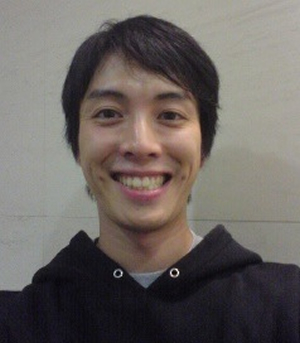

Here's some web-based definitions. The first refers to common usage. The second to its etymology.
みなさんは「あっけらかん」という言葉を普段どんな意味で使っているでしょうか。ほとんどの人は“平然”とか“けろり”といった意味で用いていることと思います。たとえば「あいつはミスをしてもいつも、あっけらかんとしている」というふうに。楽観的、という意味で使うのかもしれない。 ところが、本来の意味はそうではなかったのです。「あっけらかん」のルーツは「あんけ」で、この言葉は、「口を開けた様子」を示します。つまり、「あきれてポカンとしている」という状態を表す言葉なのです。したがって、今の一般的な用い方の“平然”や“ケロリ”というのは、誤用といえるのです。私たちは、「あっけらかん」の使い方に「あっけらかん」なのです。 しかし、ご安心を。今ではどんな辞書でも、両方の使い方をOKとしています。言葉の使われ方は時代の流れと共に変化し多様化する、という現実を追認しているわけだから。そもそも、「あんけ」という言葉自体知っている人はほとんどいないでしょうけど
(http://www.union-net.or.jp/cu-cap/akkerakan.htm)
あっけらかん 語源由来辞典 http://gogen-allguide.com/a/akkerakan.html
人生の親戚 Echo of Heaven (Relatives in Life)
St. John Passion (Chpt 1, English 13)
This specific piece of music will be mentioned several times in the course of this novel.
人生の親戚 Echo of Heaven (Relatives in Life)
"Betty Boop" (Chpt 1, English 16)
Betty Boop is a cartoon figure with overt sexuality, created in the 1930s. She appeared in film version cartoons and cartoon strips in newspapers.
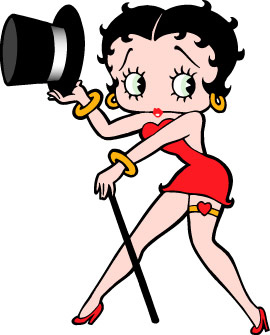
The Betty Boop lips that Ōe refers to:

YouTube: Betty Boop Ha! Ha! Ha! Cartoon Banned For Drug Use 1934
— CHAPTER 2 —
人生の親戚 Echo of Heaven (Relatives in Life)
"Sanae" (Chpt 2, English 26)
Sanae is 早苗ちゃん in the Japanese. It is a common name but, if we hypothesize that the characters of the name are meant to have a meaning, then the literal translation of this name is "early seedling" and fits in with the running theme of "trees" in the novel. Her name comes with the appellation "-chan" used for young people and has a friendly ring to it.
Note the parallel structure between making a movie to understand or capture the essence of Marie and making a book to capture the life of Sanae.
人生の親戚 Echo of Heaven (Relatives in Life)
"The American woman writer I've been reading since I was a student" (Chpt 2, English 28)
Flannery O'Connor
人生の親戚 Echo of Heaven (Relatives in Life)
"Olive Oyl" (Chpt 2, English 34)
A cartoon character first appearing in 1919, later Popeye's fickle girlfriend. The tightly bunned hair (and big feet, and overall somewhat conservative dress) is her trademark.
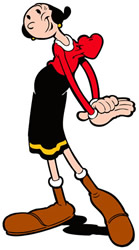
— CHAPTER 3 —
人生の親戚 Echo of Heaven (Relatives in Life)
"a junior high school boy" (the bus accident of Michio) (Chpt 3, English 44-45)
This physical damage of an innocent bystander by a misbehaving or ill-intentioned child is reminiscent of the boys who have thrown pebbles at the protagonist and ruined his eyesight that we read about in other Oe novels.
人生の親戚 Echo of Heaven (Relatives in Life)
"Nearsighted Magoo" (Mr. Magoo) (Chpt 3, English 44-45)
Quincy Magoo is a wealthy, short-statured retiree who gets into a series of sticky situations as a result of his nearsightedness, compounded by his stubborn refusal to admit the problem.
— CHAPTER 4 —
人生の親戚 Echo of Heaven (Relatives in Life)
"to buy as many of the novels, letters, and criticism by Marie's writer, Flannery O'Connor, as I could find" Flannery O'Connor (March 25, 1925 – August 3, 1964) (Chapter 4, page 67)
Excerpt from an online essay:
An examination of O’Connor’s stories soon reveals many such recurrent themes: disfigurement, shallowness, pettiness, naiveté, hypocrisy, and an overall ugliness, badness, and meanness of character woven together into a sort of dark comedy. Almost always, some shocking act of violence acts as the catalyst by which the protagonists are forced to face their own inner poverty. In this regard, she has much in common with Søren Kierkegaard, the late nineteenth-century Danish thinker hailed as the father of existentialism.
("Flannery O’Connor: Heaven Suffereth Violence" by Eric Knickerbocker Full essay)
Excerpt from an online essay:
Her literary purpose was to probe the intersections of nature and grace. In a collection of her writings, she refers to this as the struggle between “mystery and manners.” She saw modern Catholic experience as Manichean---the dividing of human experience into areas of absolute good and absolute evil. That divides human experience into either sentimentalism or obscenity. For her this division is overcome by awareness of the mystery of grace. The reality of the love of God keeps us from sliding into sentimentalism on the one hand or obscene behavior on the other.
("Flannery O'Connor: Her Vision" by F. Thomas Trotter Full essay)
On O'Connor's interest in cartoons:
Example, with the following caption: "I don’t enjoy looking at these old pictures either, but it doesn’t hurt my reputation for people to think I’m a lover of fine arts.”
(From Flannery O'Connor, Cartoonist)
人生の親戚 Echo of Heaven (Relatives in Life)
"so it will not make us mad" (Chpt 4, English 61)
Chuck writes:
K imagines Marie's former husband writing "so it will not make us mad." This refers to Lady Macbeth's line in Scene II Act 2 of Shakespeare's Macbeth: "These deeds must not be thought / After these ways; so, it will make us mad." (Source: http://shakespeare.mit.edu/macbeth/macbeth.2.2.html). I don't know the play well, but I think she is referring to the fact that Macbeth feels guilty about being involved in a murder and remembers how the murdered called out to God's grace for salvation, but that he felt he was the one who needed to hear/say "Amen" as well. His wife urges him to not feel guilt for these deaths. In such a way, Marie's husband seems to be writing as a way to disassociate himself from his children's suicide by a sort of cathartic process.
A summary of the play can be found here: Macbeth (Shakespeare birthplace trust) [Added by Wallace Nov 2019]
人生の親戚 Echo of Heaven (Relatives in Life)
Coleridge: "Remorse is as the heart, in which it grows ... " (Chpt 4, English 64-65)
"Remorse" as a concept, is key for reading this novel. Oe introduces it here, via a play by Coleridge. According to Wiki about this play: "Osorio is a tragedy in blank verse by Samuel Taylor Coleridge. It was written in 1797 but was unperformed following its rejection by Drury Lane Theatre. Coleridge revised and recast the play sixteen years later, giving it the new title of Remorse. Remorse met with considerable critical and commercial success when it was first performed in 1813 ... ."
"Remorse" is, in Ōe's original, 『悔恨』( かいこん)glossed with the furigana レモース. Definition of 悔恨:自分のしたことをくやみ残念に思うこと。"Poison tree" in the original is 毒の木, with furigana ポイズン・ツリー.
The above lines are from Samuel Taylor Coleridge's successful 1813 play titled "Remorse." It comes from very early in that play: Act 1, Scene 1. (The full play is at Google Book: Remorse: A Tragedy in Five Acts.) The scene's setting is stated as "The Sea Shore on the Coast of Granada. Don Alvar, wrapt in a Boat Cloak, and Zulimez (a Moresco) both as just landed." Zulimez, the attendant to the protagonist, speaks the lines above.
Who is Don Alvar? It is not difficult to see an echo of the 1860 Football older brother (Mitsu) - younger brother (Taka) pair in the narrative framework of the play. Don Alvar has a younger brother (Don Ordonio) who tried but failed to kill him. (Alvar also believes, incorrectly, that this brother has stolen his wife.) This attempted murder precedes of the beginning of the play and is now recalled as Alvar and Zulimez, his faithful attendant, arrive at the land where the younger brother lives. Zulimez thinks it is time for that murderous younger brother to meet his deserved fate. Alvar, on the other hand, seeks to save his brother. He will do so by showing his older brother how to feel proper remorse:
I should rouse within him
REMORSE! so that I should save him from himself.Zulimez counters with the stanza quoted in Echo of Heaven (this stanza, by the way, also serves as an epigraph beneath the title of the book in its 1815 edition at least):
Remorse is as the heart, in which it grows:
If that be gentle, it drops balmy dews
Of true repentance; but if proud and gloomy,
It is a poison-tree, that pierced to the inmost
Weeps only tears of poison!In other words: those who are gentle of spirit can find, through the pain of remorse, the desire to repent but those who are of bad character will only be further poisoned by their remorse.
Here is a rather confused summary of the play, found randomly online:
"well, i think it is about Ordonio, the younger son of Don Valdez, who had [should be: "tried to have"] his brother Alvar killed by some mercenaries on sea. It failed. Now Alvar is back after years of fighting for (i guess) Protestants in some other country. However, he is not going to revenge himself on his brother. Here, Coleridge introduces the virtues of Christian forgiveness. Alvar is in Moorish disguise and in a scene in Don Valdez's castle he shows them a painting showing the scene of his own failed attempted murder. I forgot to tell you that Alvar had a fiancée, named Teresa, who is still faithful to him and believes that he's still alive. Mercenaries had told Alvar that Teresa married his brother, but it was a lie. In short, Alvar manages to make his brother remorseful of his deed at the end of the play, though Alhadra, the Moorish woman whose husband had been murdered by Ordonio takes revenge by killing him. Alvar's identity is revealed at the end of the play when he is reunited with his lover Teresa."
Here is a bit more background information and some interpretive thoughts by a student (Chuck):
An English lyrical poet and philosopher who often wrote a collection entitled "Lyrical Ballads" with another poet William Wordsworth, which opened up the English Romantic movement. Here's a full text scan of a nicely aged version of his play Remorse, written in 1810 when Coleridge was contemplating suicide: [Chuck's url matches that listed above, to wit: Remorse: A Tragedy in Five Acts.] I think that the portion quoted in Oe seems to emphasize that this 'guilt' that Marie especially feels (but that Oe suggests is perhaps a necessary characteristic of human consciousness) can be constituted as something good ("of true repentance") providing salvation, or bad, a "poison-tree" which makes life appear like a hell that one needs to escape. K imagines that both Marie and himself are people who have a 'poison tree' alluding to the fact that they both have something to be remorseful over.
人生の親戚 Echo of Heaven (Relatives in Life)
"colegio" (Chpt 4, English 64)
Chuck writes: 'Colegio' means 'school' in Spanish and Portuguese.
Wallace writes: In Death by Water (水死, 2009) Ōe writes:
At the end of my term at Colegio de México (the national graduate school), I received a half-year's pay ...
人生の親戚 Echo of Heaven (Relatives in Life)
Gerald and Sara (Murphy): "Dear Gerald and Sarah [should be Sara]," (Chpt 4, English 66)
The two mentioned were "jetsetters" of their time and are widely considered to be the models of Nicole and Dick Diver of F. Scott Fitzgerald's Tender Is the Night. This couple has a wiki. Interesting but not relevant, much, to our story. However, Sally and Robert Fitzgerald were longtime friends of O'Connor and edited her Mystery and Manners after her death. That connection seems relevant to us.
Chuck writes:
F. Scott Fitzgerald (wiki), an American novelist active in the roaring 20s and time of jazz (thus, contemporary of Betty Boop), is writing to his expatriate, high-class friends Gerald and Sara Murphy, who had recently lost there children. In this letter Fitzgerald writes about inconsolability in life as being opposed to peace in death, but also refers to the idea that deep grief might be the same sort of stuff as joy. Good memories of the children are a part of their personal histories and will always be available to be brought into the 'now' just like we see Marie do with sweet memories of her children later in her meditations with the aim of feeling the density of time.
Howard writes:
I also found this about the letter by Lincoln that Fitzgerald mentions in his own letter on page 66. A description of the letter is:
The Bixby Letter was a letter that Abraham Lincoln wrote to a Union mother who is commonly believed to have lost five sons in the war on November 21, 1864. It was printed in the Boston Evening Transcript the same day, and is considered one of Abraham Lincoln's finest pieces of writing. However, there is some debate as to whether it was Lincoln himself who wrote it or his personal secretary John Hay.
The text of the letter (from Wikipedia) is:
Executive Mansion,
Washington, Nov. 21, 1864.
Dear Madam,
I have been shown in the files of the War Department a statement of the Adjutant General of Massachusetts that you are the mother of five sons who have died gloriously on the field of battle. I feel how weak and fruitless must be any word of mine which should attempt to beguile you from the grief of a loss so overwhelming. But I cannot refrain from tendering you the consolation that may be found in the thanks of the Republic they died to save. I pray that our Heavenly Father may assuage the anguish of your bereavement, and leave you only the cherished memory of the loved and lost, and the solemn pride that must be yours to have laid so costly a sacrifice upon the altar of freedom.
Yours, very sincerely and respectfully,
A. Lincoln
人生の親戚 Echo of Heaven (Relatives in Life)
Andrei Bely's The Silver Dove (novel, 1910) (Chpt 4, English 68–69)
Bely's wiki
Google books (preview): The Silver Dove
The Silver Dove is a strangely evocative work, and resonates well with Ōe's world. That is, this book isn't random in its inclusion in the novel—its makes a lot of sense as a book that Ōe would enjoy, and the topic of a seductive, evil (?) woman, member of a secret sect, is not so far from the world of Echo of Heaven. Dove seems kindred to Ōe in some of its use of evocative symbol rather than realism (example: the village road: "White road, dusty road — on and on it runs in a malevolent grin." … "The road slices through the big green meadow of Tselegeyevo in a malevolent grin. An unknown power drives all manner of folk along it …"), its portrait of village life, and a sense of mystery (the presence of things unknown and powerful and, usually, foreboding).
The "pock-marked" that describes the woman Matryona (as well as Esther of Dickens's Bleak House, Ōe notes) is a specific Russian word. Read here for interesting details.
From Chapter 1 (p. 40-41), when the protagonist first encounters the woman Matryona whom Ōe mentions:
With these thoughts he [Daryalsky, engaged to be married but who will be seduced by Matryona, member of a secret sect, to produce the sect's offspring] went into the church; the smell of incense, mixed with the smell of fresh birch branches, of a crowd of perspiring peasants, of their blacked boots, of candle-wax and ubiquitous red calico, struck his nose with a pleasant sensation; he had settled down to listen to Aleksandr Nikolaevich, the sexton, whose voice, from the choir on the left, was beating out a drum-roll—when suddenly from a distant corner of the church his eye was caught by the movement of a red shawl with white dapples over a red cotton bodice; a peasant woman gave him a penetrating glance; he was about to say to himself: 'There's a woman for you!', to clear his throat and assume a dignified air, in order to forget everything and start bowing in prayer to the Queen of Heaven, but . . . he did not clear his throat, he did not assume a dignified air, and he made no bow at all. His breast was seared by a sweet surge of unutterable dread, and he was unaware that the color had left his face, that, pale as death, he could barely keep his feet. Her browless face, covered in large pock-marks, had glanced at him with cruel and avid agitation. What it was telling him, this face, and what in his soul had responded to it, he did not know; there was just the movement of a red shawl with white dapples on it.
… Daryalsky was just coming up to the cross, and the priest was holding it out to him with one hand and with the other reaching for the communion bread, when suddenly the wondrous woman's gaze scorched him again; her red lips, faintly smiling, quivered slightly, as though freely quaffing of his soul; he had no recollection of kissing the holy cross, nor of the priest's invitation to partake of pie, nor of his own reply; all he remembered was that the pock-marked peasant woman had laid claim to his soul. …
A pock-marked peasant woman with browless eyes, a hawk: this was no tender flower, burgeoning in the depths of his soul, no daydream, morning light, or honey-scented meadow-grass; a stormcloud, a tempest, a tigress, a werewolf, had entered his soul in a trice and was calling him; the faint smile of her soft lips aroused in him a gentle, drunken, dull sweet sadness, laughter and lasciviousness: so it is that the recesses of a millennial past, opened for a moment, restore the memory of that which never happen in your life, call forth an unknown face, so terrifyingly familiar from your dreams; and that face rises up as the image of a childhood that never was but nonetheless took place; that is the sort of face you have, pock-marked peasant woman!
Chuck writes:
Andrei Bely was a Russian novelist and poet (1880-1934), well regarded for his novel Petersburg. He wrote some influential philosophical essays on geometry and probability, and was particularly interested in the concept of 'entropy'. (Bely's wiki) His first novel Silver Dove (mentioned in Ōe) is a story largely about dualisms: "intelligentsia and the folk, spiritualism and eroticism, rationality and instincts." (Source: http://www.kirjasto.sci.fi/bely.htm). It is from this novel that Ōe gets the character Matryona, whose pockmarked face acts as embodied and external, symbolic evidence of the suffering she has gone through.
Wallace writes:
I read this over the summer of 2010. What an interesting work! The sense of forbidden sexuality and the odd structure of cult-thinking are very strong in this work, and the imagery is super evocative. I think the sexuality has found its way into Marie, exploring cult ways of thinking has already become a theme for Ōe and will be the centerpiece of Somersault, and the system of images that are so poetic and just larger-than-life feelings sometimes I do not see in Echo of Heaven but I do think Ōe would love them.
— CHAPTER 5 —
人生の親戚 Echo of Heaven (Relatives in Life)
Huichol Indian yarn painting (Chpt 5, English 74)
Chuck writes:
The Huichol are an indigenous population living in mid-to-western Mexico. Their yarn paintings are brightly colored square tablets often with ritualistic imagery on them. (Source: http://www.huicholyarnpainting.com/). I suggest doing a Google image search, the results are pretty cool. The cactus that Marie refers to is the peyote cactus which has hallucinogenic chemicals in it, and is used in shamanistic ritual. I think that drugs have an interesting role in this story because they represent the possibility of access to unfamiliar spiritual ideas through a very material route, a sort of 'incarnation'.
人生の親戚 Echo of Heaven (Relatives in Life)
Balzac's Le Curé de village (Chpt 5, English 79)
Chuck writes:
Honoré de Balzac was a French playwright and novelist of the first half of the 19th century who wrote an extremely large amounts of works with multi-faceted, complex characters. His influence essentially founded a tradition of 'realism' in European literature, which would later have direct influence on William Faulkner. This particular novel is translated into English as The Village Rector ('rector' here meaning: religious authority/leader/teacher) [Full view of 1893 English translation at Google Books The Village Rector — jrw] and is one of the novels concerning scenes from country life from Balzac's ridiculously large 100+ novel collection called La Comédie humane. A character appearing in this text, Véronique, who Oe compares to Marie and Matryona from Bely's The Silver Dove, is a women restored to purity by confession, i.e., is healed from a 'good' form of remorse. K's wife does not like this parallel being projected onto Marie because Marie's suffering was due to a tragedy she was not clearly responsible for and not a sin she was the cause of, so 'confession' doesn't seem like it can help her. That Véronique goes to Limoges (a French town and commune [p80]), however, seems to foreshadow Marie's leaving to a commune. Wikipedia on Limoges: (http://en.wikipedia.org/wiki/Limoges)
Ian Pickup, "Balzac and the Dynamics of Passion: The Case of Véronique Graslin" Nottingham French Studies 22:2 (Mar 2012): 1-8.
https://www.euppublishing.com/doi/pdfplus/10.3366/nfs.1983-2.001
人生の親戚 Echo of Heaven (Relatives in Life)
zainichi [Koreans] (Chpt 5, English 81)
Chuck writes: Zainichi (在日) is the short name for Koreans who have long lived in Japan, often acquired Japanese citizenship by intermarrying with Japanese citizens (other naturalization processes have been allowed only since 1985). As we have seen in several Oe stories, they were forced into mandatory labor during WWII. Many Zainichi were originally brought to the Japanese mainland in 1944 to meet the Japan's shortage of labor. The Wikipedia article about this ethnic group is quite extensive: http://en.wikipedia.org/wiki/Koreans_in_Japan
人生の親戚 Echo of Heaven (Relatives in Life)
sackcloth (Chpt 5, English 85)
Ariella writes:
Sackcloth is a rough, coarse cloth made of camel's hair, goat hair, hemp, cotton, or flax. It used to be worn as a symbol or public display of extreme grief, remorse, or repentance.
(http://www.thefreedictionary.com/sackcloth)
In Biblical history, it was a black cloth worn by mourners to express grief or as a sign of repentance and humility. The addition of ashes was a further symbol of personal abhorrence and shame. Interestingly, these types of declarations can be a way of pleading for compassion and grace from God.
By way of example...
'Jonah 3:4 On the first day, Jonah started into the city. He proclaimed: "Forty more days and Nineveh will be overturned. 5The Ninevites believed God. They declared a fast, and all of them, from the greatest to the least, put on sackcloth. 6When the news reached the king of Nineveh, he rose from his throne, took off his royal robes, covered himself with sackcloth and sat down in the dust. 7Then he issued a proclamation in Nineveh: "By the decree of the king and his nobles: Do not let any man or beast, herd or flock, taste anything; do not let them eat or drink. But let man and beast be covered with sackcloth. Let everyone call urgently on God. Let them give up their evil ways and their violence. 9Who knows? God may yet relent and with compassion turn from his fierce anger so that we will not perish."10When God saw what they did and how they turned from their evil ways, he had compassion and did not bring upon them the destruction he had threatened.'
(http://www.keyway.ca/htm2002/20020421.htm and http://www.bibleplus.org/love/love.htm)
人生の親戚 Echo of Heaven (Relatives in Life)
Dickens' Bleak House (Chpt 5, English 85)
Chuck writes:
Charles Dickens wrote Bleak House (regarded as one of his finest novels) from 1853-1854, publishing it in monthly installments of 4 chapters or so each. It is distinguished among his books for having a very complex plot and many minor characters with related sub-plots, a complicated style perhaps reminiscent of Oe. This book is a criticism of England's Court of Chancery, whose law process Dickens found arcane, and contributed to a movement to enact legal reform in the 1870s.
Wikipedia: http://en.wikipedia.org/wiki/Bleak_House
人生の親戚 Echo of Heaven (Relatives in Life)
musings: a network of pockmarked women in this novel
From The Silver Dove (Matryona):
A pock-marked peasant woman with browless eyes, a hawk: this was no tender flower, burgeoning in the depths of his soul, no daydream, morning light, or honey-scented meadow-grass; a stormcloud, a tempest, a tigress, a werewolf, had entered his soul in a trice and was calling him; the faint smile of her soft lips aroused in him a gentle, drunken, dull sweet sadness, laughter and lasciviousness: so it is that the recesses of a millennial past, opened for a moment, restore the memory of that which never happen in your life, call forth an unknown face, so terrifyingly familiar from your dreams; and that face rises up as the image of a childhood that never was but nonetheless took place; that is the sort of face you have, pock-marked peasant woman!
From The Village Rector (Veronique):
Veronique Sauviat was, therefore, brought up in a Christian manner. From the time she was seven years old she was taught by a Gray sister from Auvergne to whom the Sauviats had done some kindness in former times. Both husband and wife were obliging when the matter did not affect their pockets or consume their time,—like all poor folk who are cordially ready to be serviceable to others in their own way. The Gray sister taught Veronique to read and write; she also taught her the history of the people of God, the catechism, the Old and the New Testaments, and a very little arithmetic. That was all; the worthy sister thought it enough; it was in fact too much.
At nine years of age Veronique surprised the whole neighborhood with her beauty. Every one admired her face, which promised much to the pencil of artists who are always seeking a noble ideal. She was called “the Little Virgin” and showed signs already of a fine figure and great delicacy of complexion. Her Madonna-like face—for the popular voice had well named her—was surrounded by a wealth of fair hair, which brought out the purity of her features. Whoever has seen the sublime Virgin of Titian in his great picture of the “Presentation” at Venice, will know that Veronique was in her girlhood,—the same ingenuous candor, the same seraphic astonishment in her eyes, the same simple yet noble attitude, the same majesty of childhood in her demeanor.
At eleven years of age she had the small-pox, and owed her life to the care of Soeur Marthe. During the two months that their child was in danger the Sauviats betrayed to the whole community the depth of their tenderness. Sauviat no longer went about the country to sales; he stayed in the shop, going upstairs and down to his daughter’s room, sitting up with her every night in company with his wife. His silent anguish seemed so great that no one dared to speak to him; his neighbors looked at him with compassion, but they only asked news of Veronique from Soeur Marthe. During the days when the child’s danger reached a crisis, the neighbors and passers saw, for the first and only time in Sauviat’s life, tears in his eyes and rolling down his hollow cheeks; he did not wipe them, but stood for hours as if stupefied, not daring to go upstairs to his daughter’s room, gazing before him and seeing nothing, so oblivious of all things that any one might have robbed him.
Veronique was saved, but her beauty perished. Her face, once exquisitely colored with a tint in which brown and rose were harmoniously mingled, came out from the disease with a myriad of pits which thickened the skin, the flesh beneath it being deeply indented. Even her forehead did not escape the ravages of the scourge; it turned brown and looked as though it were hammered, like metal. Nothing can be more discordant than brick tones of the skin surrounded by golden hair; they destroy all harmony. These fissures in the tissues, capriciously hollowed, injured the purity of the profile and the delicacy of the lines of the face, especially that of the nose, the Grecian form of which was lost, and that of the chin, once as exquisitely rounded as a piece of white porcelain. The disease left nothing unharmed except the parts it was unable to reach,—the eyes and the teeth. She did not, however, lose the elegance and beauty of her shape,—neither the fullness of its lines nor the grace and suppleness of her waist. At fifteen Veronique was still a fine girl, and to the great consolation of her father and mother, a good and pious girl, busy, industrious, and domestic
https://www.gutenberg.org/files/1899/1899-h/1899-h.htm#link2H_4_0003
From a blog "Untold lives blog" Dec 3, 2013: "Dickens, Esther and Smallpox: A Bleak Prognosis" (Esther)
A Dickensian story for Christmas week - but perhaps not as you might expect! We shift the focus from seasonal Pickwickian jollity to Bleak House and smallpox.
Midway through Bleak House, a simple act of charity lands heroine Esther Summerson with a potentially life-threatening disease. It looks like smallpox, reads like smallpox and, in one particularly memorable sequence, and even smells like smallpox. But for all this, Dickens never categorically states that it is indeed smallpox which ruins Esther’s complexion and hastens Jo the Crossing Sweeper to his overly sentimental death.
https://blogs.bl.uk/untoldlives/2013/12/dickens-esther-and-smallpox-a-bleak-prognosis.html
From Bleak House, Chapter 36 (Esther):
My hair had not been cut off, though it had been in danger more than once. It was long and thick. I let it down, and shook it out, and went up to the glass upon the dressing-table. There was a little muslin curtain drawn across it. I drew it back and stood for a moment looking through such a veil of my own hair that I could see nothing else. Then I put my hair aside and looked at the reflection in the mirror, encouraged by seeing how placidly it looked at me. I was very much changed--oh, very, very much. At first my face was so strange to me that I think I should have put my hands before it and started back but for the encouragement I have mentioned. Very soon it became more familiar, and then I knew the extent of the alteration in it better than I had done at first. It was not like what I had expected, but I had expected nothing definite, and I dare say anything definite would have surprised me.
I had never been a beauty and had never thought myself one, but I had been very different from this. It was all gone now. Heaven was so good to me that I could let it go with a few not bitter tears and could stand there arranging my hair for the night quite thankfully.
http://www.literaturepage.com/read/dickens-bleak-house-576.html
— CHAPTER 6 —
人生の親戚 Echo of Heaven (Relatives in Life)
Tagalog for "cosmic will" (Chpt 6, English 88)
Chuck writes:
According to an online translator, "cosmic will" in Tagalog [Filipino — jrw] is "kosmiko ay".
(http://www.stars21.com/translator/english_to_filipino.html)
However, Wallace finds this: "cosmic kalooban"
人生の親戚 Echo of Heaven (Relatives in Life)
O'Connor with crutches and peacocks: (Chpt 6, English 93)
Chuck writes: Flannery O'Connor with crutches and peacocks possibly refers to this image:
http://4.bp.blogspot.com/_khYoWIBgmBI/SqaGOfAanbI/AAAAAAAABaQ/J4X1oDBVQz0/s1600-h/Oconnor2.jpg
… or, maybe this one:
http://flagpole.com/images/jpgs/2009/02/25/Reader-FlanneryOConnorWithPeacock_b.jpg
人生の親戚 Echo of Heaven (Relatives in Life)
Blake's Orc, a portrait of which is above Marie's desk (Chpt 6, English 93)
Orc seems to be a good metaphor for Marie (Himiko, of course, also had Blake illustrations above her desk, Chpt 4, English 43):
Orc (a proper name) is one of the characters in the complex mythology of William Blake. Unlike the medieval sea beast, or Tolkien's humanoid monster, his Orc is a positive figure, the embodiment of creative passion and energy, and stands opposed to Urizen, the embodiment of tradition. ... Orc is described by Blake as 'Lover of Wild Rebellion, and transgressor of God's Law'. He symbolizes the spirit of rebellion and freedom, which provoked the French Revolution.
(Wiki: Orc [Blake])
The below image is from http://en.wikipedia.org/wiki/File:Blake_America_12.jpg
Chuck writes:
Orc, a character in William Blake's mythology: Oe explains that the character of Orc personifies youth; Blake defines Orc as a 'Lover of Wild Rebellion, and transgressor of God's Law'. K wrote a novel in which he tried to connect metaphors from Blake's poetry and Illuminated Plates to the inner life of his son Hikari. Orc's role in Blake's mythology seems to be quite similar to what Marie says she wants to do in K's dream: to rebel against what God has given her by doing the opposite of the so-called 'good' that provides. [This theme becomes central to the story of the cult in Somersault, 『宙返り』 1999] There seems to be some sense that the idea of truly forgetting a trauma in one's past would be an act of such Orc-like rebellion, in that it pushes away the life that God gave you and in doing so heals you--which connects to the idea of 'youth'. (I think that the image on Marie's desk might very well refer to the image in this Wikipedia article: http://en.wikipedia.org/wiki/Orc_%28Blake%29 [which is the image I have already inserted, above — jrw]) Concerning Blake's illuminated plates: some of the most popular where "Songs of Innocence and Experience" & "The Marriage of Heaven and Hell".
人生の親戚 Echo of Heaven (Relatives in Life)
Beethoven's 9th Symphony: (Chpt 6, English 94)
Chuck writes:
The opening of this symphony is inspired by a 1785 poem by Friedrich Schiller called "An die Freude", often translated into "Ode to Joy", which celebrates the unity and brotherhood of all of mankind. By the time Beethoven wrote this symphony, he was entirely deaf. I think that Oe must have been aware of this, and that he likely chose this piece to harken to Marie's debate with Little Father about the 'sensible' and 'intelligible'. Here, Beethoven no longer has any 'sensible' connections to the piece he is composing (because he cannot hear it) but nonetheless can compose masterfully as informed by his intellectual understanding. In this case as isolated from the rest of Beethoven's life, it is clear that 'logos' (what can be intelligible) is the origin of his expression; but, one has to wonder whether that logos wasn't first informed by actual sensible experiences of music beforehand. Here is a link: http://www.youtube.com/watch?v=_-mvutiDRvQ
Wallace writes:
The symphonic movement that most of us know the best from Beethoven's 9th is the last, and it this movement that is based on "Ode to Joy." It is some of the most inspirational music I know of, maybe the most inspirational music (for me). Beethoven's 9th is holiday music in Japan — one can often hear it during New Year concerts. Here is a link to that portion of the final movement that sings the lyrics to "Ode to Joy." It projects them both in the original German and English while playing the movement: http://www.youtube.com/watch?v=4pbMUEHvoAo
Wallace continues:
For more on Beethoven's deafness, a condition that might have been caused by beatings from his father while young, go here.
人生の親戚 Echo of Heaven (Relatives in Life)
jeepny (Chpt 6, English 95)
Chuck writes:
A popular form of public transportation in the Philippines that have become somewhat of a national cultural icon there. Originally, they were constructed out of US military jeeps left over from World War II. Often, they are painted with bright colors much akin to Huichol yarn paintings. Here's a picture:
http://farm4.static.flickr.com/3228/2475321135_78e428875b.jpg
Wallace writes:
And here's another one
人生の親戚 Echo of Heaven (Relatives in Life)
"papier-mache bears, a traditional Filipino handicraft" (Chpt 6, English 95)
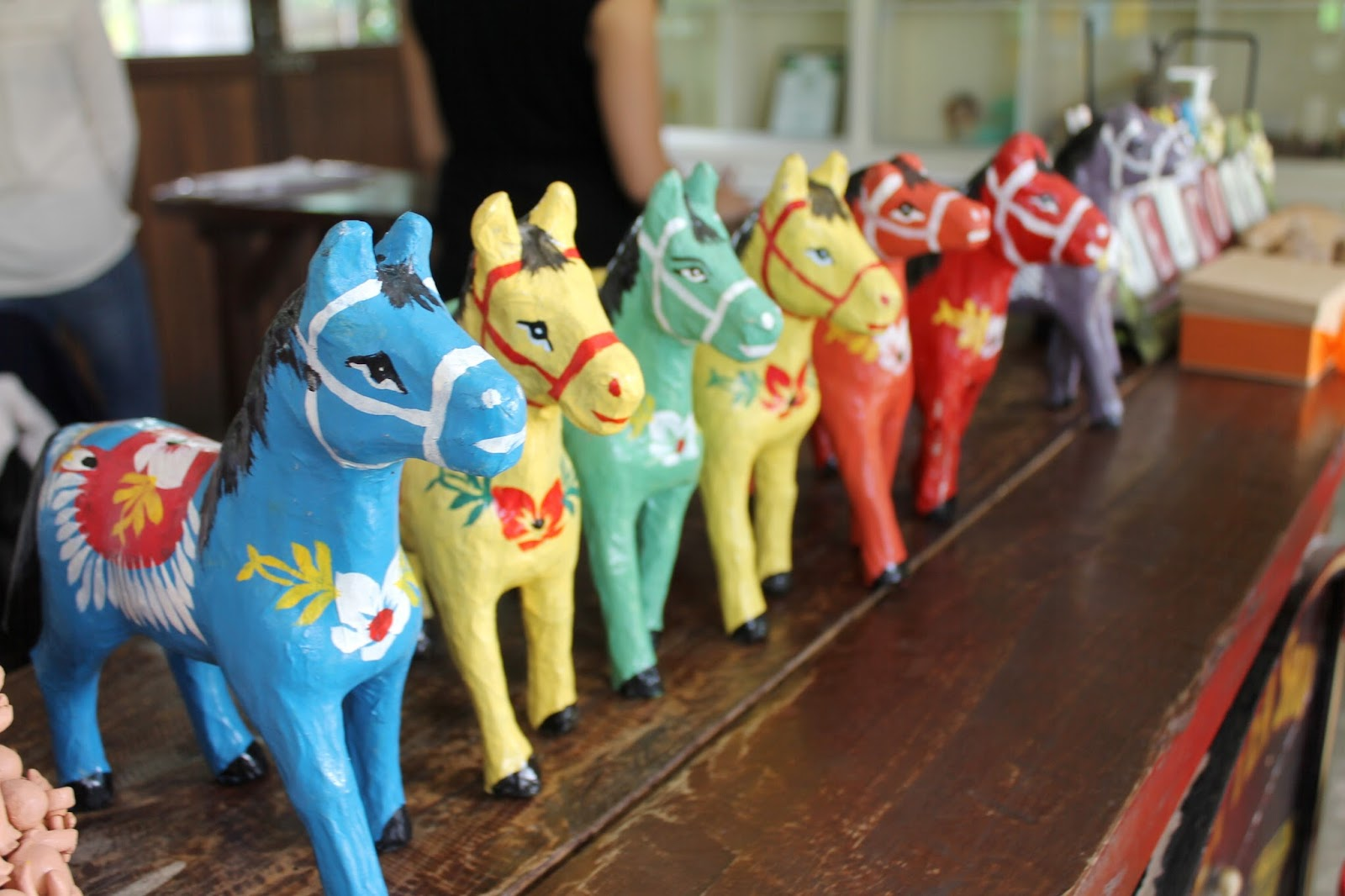
Athena writes:
There is a traditional art called taka, a paper mache craft that uses carved wooden sculptures as a mold -- this is referenced in Coz's dream of the heirloom mold that was abandoned in favor of mass production techniques. These paper mache products are typically painted in primary colors (like the jeepneys and yarn craft). Local subject matter is pastoral but when taka gained exposure from migration, it became produced for export -- namely to Germany, where Coz goes in his story -- and the subject matter was adapted for other markets to include other figures like bears, giraffes, Santa Claus, etc.
In the novel it is called a Filipino handicraft, but in the Philippines it is a folk art that originated and is mainly produced in Paete, a town in the Laguna province. Paete is considered one of the last remaining strongly artistic regions in the Philippines, giving credibility to Coz's and his troupe's inclination to theater. Paete was actually founded by Franciscan friars, and is a pilgrimage site with religious significance to Catholics as a site of a miracle of St. Anthony the Abbot. Considering Coz's role in Marie's journey, it may be interesting for readers to know that the patron saint of Paete is St. Joseph -- husband of Mary, mother of Jesus -- who is also the patron saint of workers, immigrants, the sick, against doubt and hesitation, and of a happy death.
I also want to point out that the Franciscan Order, which founded Paete and established the Catholic teachings in Paete (different Orders have differences in disciplines), follow the teachings of Saint Francis of Assisi, one of the most venerated religious figures in history. He was canonized in 1228, and became associated with patronage of the natural environment. St. Francis believed that nature was the mirror of God, By extension that belief created in St. Francis a deep respect and love for all things natural, including his own chronic illness. He firmly believed in brotherhood and embraced people of all faiths, reaching out to and embracing followers of other religions in love. St. Francis was the first recorded person to received the stigmata (1224) and bear the wounds of Christ's passion. The priests who founded Paete were members of the Order of Friars Minor, the Order directly founded by Saint Francis of Assisi and most closely connected to him. The current pope (as of 2016), Pope Francis, is the first to select his papal name in honor of Saint Francis of Assisi.
人生の親戚 Echo of Heaven (Relatives in Life)
First 15 seconds of Oe Hikari's Blue Bird March (Chpt 6, English 97)
Here.
— CHAPTER 7 —
人生の親戚 Echo of Heaven (Relatives in Life)
Little Father (usually in the original テューター・小父さん)'s religious sect (Chpt 7, English 105)
The content of the counselor-leader of the religious group in Jinsei no shinseki is my invention. I was thinking over on my own various ways I might be able to overcome the pain that I was feeling [自分がもっている苦しみ].
Quoted in 『大江健三郎・再発見』集英社, 2001, p. 211, which quotes from 『医師宇上田敏との対談「人間共通の課題としての『障害の受容』」』 Oct. 1990.
人生の親戚 Echo of Heaven (Relatives in Life)
W.B. Yeat's "The Second Coming" (1919, so post-WWI), the poem (of revolution or terrible change) that so interests Marie (Chpt 7, English 105)
Full text here although almost all of the poem appears, in pieces, within Echo of Heaven.
Some commentary on parts of the poem, as found in its wiki:
In the early drafts of the poem, Yeats used the phrase "the Second Birth", but substituted the phrase "Second Coming" while revising. The Second Coming of Christ referred to in the Biblical Book of Revelation is here described as an approaching dark force with a ghastly and dangerous purpose. Though Yeats's description has nothing in common with the typically envisioned Christian concept of the Second Coming of Christ, as his description of the figure in the poem is nothing at all like the image of Christ, it fits with his view that something strange and heretofore unthinkable would come to succeed Christianity, just as Christ transformed the world upon his appearance. This image points rather to the sinister figure of Antichrist that precedes the Second Coming of Christ.
The "spiritus mundi" (Latin "spirit of the world") is a reference to Yeats' belief that each human mind is linked to a single vast intelligence, and that this intelligence causes certain universal symbols to appear in individual minds.
Chuck writes:
"The Second Coming": written in 1919 by Irish poet William Butler Yeats, to whom Oe drew natural links with Blake [JRW: as do many]. The word gyre is central to both this poem and Little Father's metaphysics presented to the Center in Echo of Heaven. According to Yeats, the gyres were overlapping conic helixes that represent the ever-present contrary motions that drive forth history. I think that the overlapping of the conic helixes is supposed to show how the unity of historical existence is brought about by an inherent duality. (Here's a pretty good demonstration of the theory: http://www.yeatsvision.com/Geometry.html … also, look at the pictures on this page for a greater appreciation for the sheer complexity of Yeats's theory: http://www.yeatsvision.com/History.html [JW: scroll down]) This double-cone gyre cycle is reminiscent of the almost Taoist repetitive cycle that we saw in MANEN through the Nembutsu dance etc., and even brief moments of imagining future wars and the continuance of life passed individual death in MEMUSHIRI and "Lavish Are the Dead." The double-cone cycle also makes intelligible a way to understand Little Father / the Center's theory that the world is both still in the process of creation and simultaneously nearing its end.
[JRW: See also Bergson on time.
"Images of duration—The first is of two spools, one unrolling to represent the continuous flow of aging as one feels oneself moving toward the end of one's life-span, the other rolling up to represent the continuous growth of memory which, for Bergson, equals consciousness. No two successive moments are identical, for the one will always contain the memory left by the other. A person with no memory might experience two identical moments but, Bergson says, that person's consciousness would thus be in a constant state of death and rebirth, which he identifies with unconsciousness. The image of two spools, however, is of a homogeneous and commensurable thread, whereas, according to Bergson, no two moments can be the same, hence duration is heterogeneous.
(https://en.wikipedia.org/wiki/Duration_(philosophy)) ]
Chuck continues:
The creature whose readiness to bring about destruction is also at the same time the source of world-generation is mentioned in this poem ("The Second Coming"): ". . . now I know / That twenty centuries of stony sleep / Were vexed to nightmare by a rocking cradle, / And what rough beast, its hour come round at last, / Slouches towards Bethlehem to be born?" Also, according to Little Father, all of the universe is similarly a cone, where we, always is the 'now' occupy the base and God is the point that 'holds up' the structure of the conic shape, (see p112). The feeling-the-density-of-time technique is supposed to draw in the point at the top of the cone (God) towards and eventually into the plane of the intelligible world (the base of the cone). This would void the area of the cone (thus infinite density), so it seems somehow impossible, but according to Little Father, that is what happened when, through incarnation into Jesus, God was both in-the-world and supporting it.
Chuck adds:
Note on the density of time meditation: it seems to involve living simultaneously in many 'now's, almost as if one's own life is a recipe for being more than one soul at a time, which contradicts the passage from Dante that K quotes and agrees with on page 53-54 about the impossibility of multiple souls.
人生の親戚 Echo of Heaven (Relatives in Life)
Dante's "As the falcon on the wing for many hours" (Chpt 7, English 106)
In Inferno XVII Dante compares the winged monster Geryon that transports the Pilgrim and Virgil to Lower Hell on his back to a descending falcon, one of a number of avian motifs that provide parodic inversions of Dante’s eventual ascent to God:
As the falcon on the wing for many hours,
having found no prey, and having seen no signal
(so that his falconer sighs: “Oh, he falls already”),
descends, worn out, circling a hundred times
(instead of swooping down), settling at some distance from
his master, perched in anger and disdain,
so Geryon brought us down to the bottom
at the foot of the jagged cliff, almost against it,
and once he got our bodies off his back,
he shot off like a shaft from a bowstring. (Inferno 17. 127-36)Unlike Dante’s upward voyage throughout Purgatorio and Paradiso with the aid of his guides, Virgil, Beatrice, and the Virgin Mary, the hazardous flights of Phaeton and Icarus to whom Dante compares himself during this free fall on Geryon’s back lead to disaster because they disregard their leaders.
Jennifer C. Vaught, "‘Le penne delle mie ali‘: The Flight of the Poet in Dante’s Commedia" Discoveries 25.2 (2008): 35-47
人生の親戚 Echo of Heaven (Relatives in Life)
Blake's "linked to the beast that will appear at the end of the world, described in Revelations" (Chpt 7, English 106)
The Beast (Greek: Θηρίον, Thērion) may refer to one of two beasts described in the Book of Revelation.
The first beast comes "out of the sea" and is given authority and power by the dragon. This first beast is initially mentioned in Revelation 11:7 as coming out of the abyss. His appearance is described in detail in Revelation 13:1-10, and some of the mystery behind his appearance is revealed in Revelation 17:7-18.
The second beast comes "out of the earth" and directs all peoples of the earth to worship the first beast. The second beast is associated with Revelation 13:11-18 the false prophet.
The two beasts are aligned with the dragon in opposition to God. They persecute the "saints" and those who do "not worship the image of the beast [of the sea]" and influence the kings of the earth to gather for the battle of Armageddon.
Wiki: The Beast (Revelation)
人生の親戚 Echo of Heaven (Relatives in Life)
Blake's "The Mental Traveller" (Chpt 7, English 106)
Optional: For an analysis of "The Mental Traveller" see: IZAK BOUWER & PAUL McNALLY, "“THE MENTAL TRAVELLER”: MAN’S ETERNAL JOURNEY," Blake: An Illustrated Quarterly 12:3 (Winter 1978-79). Here are the first paragraphs of that article:
The Mental Traveller" describes a cycle in which two figures, one male and one female, grow from infancy to old age and back to infancy again. Each grows younger as the other grows older, so that each is oldest when the other is at the point of birth. This curious round of change becomes understandable when we realize that the figures personify two complementary principles. However, the interpretation of these principles and of their cycle of change has proved to be puzzling and controversial. Of two main critical traditions, the earlier represents the cycle as essentially prototypical of cyclic process, and in particular of historical cycles. Such a generalizing approach is out of character for Blake, and the cyclic processes of history are certainly within the grasp of "cold Earth wanderers," while this cycle is explicitly said to go beyond their knowledge. However, this tradition incorporates, in a simple and natural way, the fact that each principle develops to its fullest manifestation and then diminishes in the face of the growing opposing principle. The later tradition involves interpretations in terms of the so-called "Orc cycle": the Male Babe personifies revolt (Orc) and ages into a personification of oppression (Urizen). Such a cycle is complete half way through the poem, and in spite of various attempts to interpret the Female Babe, the second half of Blake's cycle remains logically impertinent. In both traditions, the cycle is seen as repeating.
The reading we give in this paper follows the earlier tradition to the extent that each principle is seen as aging into a mature form of itself. However, our reading differs from that of the earlier tradition in that the cycle is specifically seen as the theological cycle of Man's fall from and return to Eden. It is our aim to show that "The Mental Traveller" portrays the successive states through which Man passes on his eternal journey, as determined by the complementary interplay of two principles in him: the Spiritual, expressed through his imaginative faculty, and the Natural, expressed through his earthly nature. This theme of Man's eternal journey was of profound importance to Blake, and inspires his entire mythology, so that the poem emerges as a compact counterpart to his major work, and a summary of his spiritual vision.
"The Mental Traveller" see: IZAK BOUWER & PAUL McNALLY, "“THE MENTAL TRAVELLER”: MAN’S ETERNAL JOURNEY," Blake: An Illustrated Quarterly 12:3 (Winter 1978-79)
For the full poem see: "The Pickering MS. The Mental Traveller" or search the title.
Chuck writes:
This Blake poem combines many relevant images concerning innocence, youth, inhabiting world, taking on suffering, messiahs and more. The poem opens with an important notion to Echo of Heaven, which is suffering of the innocent (i.e., being handicapped from birth cannot be seen to be a deserved punishment for a child since he could have not yet sinned). We see an old woman torturing a babe (who turns out to be like Jesus) and gaining youth from his suffering from which the babe then becomes old. Then, the tortured babe makes home in the old woman (who has now been made young); their union causes the world to open up and become a dwelling place, originating in the marriage of contradicting opposites. The poem then focuses on the babe's becoming younger and then being born. Here, man and women, as well as old and young, seem to be two competing gyres, whose subsistence comes from their contradictory co-existence. Though predating Yeats, this seems very similar to Yeats's metaphysical scheme, as well as the co-dependence of existence on/with non-existence as seen in Taoist cosmology.
人生の親戚 Echo of Heaven (Relatives in Life)
Spiritus Mundi (Chpt 7, English 107)
Chuck writes:
The 'spirits mundi' (Latin 'spirit of the world') is a reference to Yeats' belief that each human mind is linked to a single vast intelligence, and that this intelligence causes certain universal symbols to appear in individual minds. Carl Jung's book The Psychology of the Unconscious, published in 1912, could have had an influence, with its idea of the collective unconscious.
(Taken directly from Wikipedia article: http://en.wikipedia.org/wiki/The_Second_Coming_%28poem%29)
人生の親戚 Echo of Heaven (Relatives in Life)
The Second Coming in the Book of Matthew (Chpt 7, English 107)
Chuck writes:
The Book of Matthew is one of four canonical chapters of the first book of the New Testament of the Christian Bible, composed by Matthew, a disciple of Jesus, and incorporating influences from another disciple Luke. Much of this chapter details Jesus's historical life, especially infancy. Here is a link to Matthew 24, which details Christ's premonition and intention for a Second Coming: http://www.biblegateway.com/passage/?search=Matthew+24&version=KJV … Here, Christ explains that the disasters accompanying the apocalypse will merely be birthing pains of a new world. This connects up with the Center's etymological debate over the meaning of "Antichrist." In some way, "Anti-" suggests 'before' so that the apocalyptic times (and the suffering which Marie believes we all are defined by) are an ushering in of Christ. Similarly, "Anti-" seems to suggest 'opposite' so that this suffering that we are is not God, but the opposite which provides us with a world by separation from God; however, if the Second Coming is to arrive, then this 'not-God' quality of the world as suffering becomes a 'not-yet-God' as a suffering that leads up to its own end by uniting with God. The possibility that this suffering or 'not-God-ness' can result in repentance and salvation seems to be what grace is supposed to illuminate in Flannery O'Connor's stories. The related question that concerns Marie is whether this God can be in-the-world and relevant to us as incarnated in flesh — in other words, whether heaven can be on earth, or whether it is always afterward. And, how are we supposed to make sense of Michio and Musan's death if we don't know whether 'heaven' is in this world or the next? Is suicide supposed to be a rejecting the possibility of heaven on earth, or a wanting heaven so much that earth must be escaped?
Chuck continues:
On a side note, Matthew 24 compares the Second Coming to a lightning strike when explaining that it will be clear that Jesus has returned and not just a false prophet; this seems to be related to the lightning that Marie apprehended as a premonition and fled in fear as a child. ["I can clearly remember the instant the photograph was taken. A gust of wind, filled with gathering rain, then the deafening crack; the shock threw me down on the lawn. For a split second, I remember being filled with a premonition-somethings going to happen, right now-down to the very tips of my hair."] How to respond to this lightning, or alternatively the possibility of a Second Coming, then, becomes an issue that human freedom must take a stance on (as we see in Marie's dream about the lightning strike [p129]). In Echo of Heaven, it seems like it is how one senses and/or understands this lightning that constitutes the world as either heaven or hell. For those interested in Philosophy, this idea of freedom as the origin of suffering and its negation (and of heaven and hell on earth) can be seen in Sartre's Being and Nothingness and yet more concretely in Dostoevsky's existential novel, The Brothers Karamazov. Jesus says, "Heaven and earth will pass away, but my words will not pass away" — all that remains is pure unembodied logos (the possibility for intelligibility).
人生の親戚 Echo of Heaven (Relatives in Life)
"Mary Jane" (Chpt 7, English 108)
Virginia writes:
It is a type of strap shoes with low heels and rounded closed toes. It is traditionally worn by young girls for formal occasions. Here is a link to a picture of red Mary Jane:
人生の親戚 Echo of Heaven (Relatives in Life)
"the Second Coming isn't far off, ..." (Chpt 7, English 111)
Little Father's interest in the second coming is prescient of Ōe's later novel Somersault.
Somersault (宙返り Chūgaeri) is a 1999 novel by Kenzaburō Ōe. It is about two former leaders of a religious cult as they try to establish a new movement, a possible nuclear catastrophe, and religious sects in everyday society.[1] It received inspiration from the Aum Shinrikyo cult and their Tokyo subway sarin attack of 1995.
Wiki: Somersault (novel)
人生の親戚 Echo of Heaven (Relatives in Life)
"conc" — orange juice concentrate — "density of time" (Chpt 7, English 112)
At this time "fresh" orange juice was often sold as a frozen concentrate which would then be diluted with water to make "fresh" orange juice.

人生の親戚 Echo of Heaven (Relatives in Life)
"making it so that 'now,' and another time that is not the present, and yet another, separate time, are all moving along side by side" (Chpt 7, English 113)
[Taka prances in the snow naked, with an erection:]... leaving nothing but the summation of stilled movement on the snow, one hundred years enclosed within a moment.
The Silent Cry, 149.
[Mitsu looks upon the dead body of his brother:] I had a feeling, a spurious memory, of having encountered just such a dead man, dead in the very storehouse, on countless occasions before.
The Silent Cry, 244.
人生の親戚 Echo of Heaven (Relatives in Life)
"didn't he [Michio just before pushing his wheelchair over the cliff] believe in the existence of 'heaven,' echoing back to him from Musan?" (Chpt 7, English 118)
This is surely the passage the translator used to decide an English title for her translation. The Japanese here is: コダマをかえす「天国」の所在は、なお信じていたのでわないか?
人生の親戚 Echo of Heaven (Relatives in Life)
Marie's recommendation for masturbation (Chpt 7, English 121)
The internal controversy within the Theosophical Society (which believed in celibacy) about the appropriateness or inappropriateness of masturbation is widely known and discussed by Theosophists and would surely have been known to Ōe if he read Theosophical writings (rather than just Yeats and Blake—both claimed by the Theosophists as honorary members of their society).
Leadbeater [one of the leaders of the Theosophical Society] was controversial, and concerns were raised when he was found to have instructed two boys in masturbation. The American Section of the Theosophical Society raised internal charges against him, although Besant came to his defense. In a move probably designed to limit negative publicity for the Society, they accepted his resignation rather than expelling him.
Wiki: Theosophy
— CHAPTER 8 —
人生の親戚 Echo of Heaven (Relatives in Life)
"were you about to go swimming?" (Chpt 8, English 125)
Ōe began regularly swimming arond 1972, for health reasons.
人生の親戚 Echo of Heaven (Relatives in Life)
Mt. Asama (Chpt 8, English 127)
Chuck writes:
Marie asks whether a mountain she sees from the pool is Mt. Asama (浅間山), an active volcano that seems to erupt about at a rate of approximately every 5 years. It is 2,500+ meters high and is situated in the center of Hônshû. In 1982, not too long before the original publication of Echo of Heaven, ash from this mountain traveled all the way to Tokyo, 130+km away, which was apparently quite a shock. (This happened again in 2009) Marie asks this after her dream about the lightning bolt, so perhaps she feels she is about to apprehend another natural disaster. Such a natural disaster might be interpreted to be linked to a Second Coming of Christ, which follows an apocalyptic era, so Marie seems to be attuned to the possibility of an eruption in this scene, (http://en.wikipedia.org/wiki/Mt._Asama). [JRW: It is best to scroll down and see the image with the caption: "Onioshidashi lava flow on the southern foot (erupted in 1783)" since the snow-capped image hides the extent of the lava flows.] The mountain that she sees, however, is Mt. Takatsunagi.
人生の親戚 Echo of Heaven (Relatives in Life)
"splits me in half and burns me to a cinder" (Chpt 8, English 128)
This foreshadows Frida Kahlo's paintings, introduced in Chapter 9.
人生の親戚 Echo of Heaven (Relatives in Life)
Oni-oshi-dashi (Chpt 8, English 131)
Chuck writes:
Oni-Oshi-Dashi (鬼押出し): see http://ja.wikipedia.org/wiki/浅間山 … and, http://ja.wikipedia.org/wiki/鬼押出し園 … Apparently there is some ritual in Mt. Asama for devil-extraction (de-possesion) involving the sulfur rocks there. The sulfur, naturally, is an image of the Christian hell, which is shown to perhaps take place on earth in Echo of Heaven. Yet, it is by the same token that healing is possible, as the sulfur rocks seem to be the medium for purification as well. The dual nature of these sulfur rocks reflects that of 'remorse' in Coolidge's play.
Wallace writes:
I want to keep Chuck's above thoughts, but Oni-Oshi-Dashi is the location of a 1783 eruption, that has been named based on a local legend that oni pushed out the rough rocks from the volcano cauldron (鬼押出し園は、天明3年(1783年)の浅間山噴火によって生まれた、溶岩の芸術です。火口で鬼があばれ岩を押し出した、という当時の人々の噴火の印象が、この名前の由来となっています http://www.princehotels.co.jp/amuse/onioshidashi/index.html)
人生の親戚 Echo of Heaven (Relatives in Life)
Brantôme (Chpt 8, English 135)
Chuck writes:
Brantôme was a 16th-century French historian. Apparently, his work is thought to be highly embellished, but at the same time has a strong resonance of truth, given that he does not omit information about promiscuous acts from his books. Rather, quite detailed records of cunnilingus and sadomasochism seem to lend his texts a sort of embodied authenticity. Given the rarity of such remarks in his time, he seems to be a big advocate for the body, and one that might influence Marie towards fulfillment of her bodily existence as a source of pleasure, escape from tragedy, and possibly even healing. (based on: http://en.wikipedia.org/wiki/Pierre_de_Bourdeille,_seigneur_de_Brantôme).
Chuck continues:
Additionally, the name Brantôme also refers to a commune in south-western France (http://en.wikipedia.org/wiki/Brantôme,_Dordogne), established as a holding grounds for relics (sanctified body parts) of Saint Sicarius, an infant killed in the Massacre of the Innocents by the King of Judeau, Herod the Great as detailed in the Book of Matthew (http://en.wikipedia.org/wiki/Massacre_of_the_Innocents). Since this Brantôme involves certain familiar themes from Echo of Heaven, such as suffering of innocence, communes and the Book of Matthew, I wouldn't put it past Oe that he might also be alluding to this secondary referent of that name.
人生の親戚 Echo of Heaven (Relatives in Life)
Brantôme and the gang-raped nun (Chpt 8, English 135)
This is a full text of Lives of fair and gallent ladies. I can't easily find such a passage as suggested in the Marie-K conversation, although there are similar passages of unrestrained sexual acts. I mention this here because of how this links to the end of Echo of Heaven.
人生の親戚 Echo of Heaven (Relatives in Life)
Schubert's Arpeggione Sonata (Chpt 8, English 136)
Chuck writes:
This is the only canonical composition for the arpeggione, a rare six-string guitar bent like a cello, that still exists today (for more on the instrument, see: http://www.bachtrack.com/arpeggione-should-we-fret). Schubert wrote this piece while suffering bad syphilis and related bouts of depression. The song has an up-beat atmosphere, that seems to speak of its origin in some deep suffering, much like Marie's "wide-open" smile. (Here is a link to a recording: http://www.youtube.com/watch?v=oh1PuFo-c_M … here is a recording with a flute, so closer to what is in Oe's text (long load-time): http://www.youtube.com/watch?v=-4U2u5_Cb4U&feature=related) Marie says that this song "fits the mood," perhaps because it encapsulates who she is right now and what she is going through. Without language, it seems like Hikari has perhaps provided the most accurate representation of Marie so far in the story. That is, there is nothing totally intelligible why the song feels right, rather it just feels right (the appropriateness is merely 'sensible,' not 'intelligible').
人生の親戚 Echo of Heaven (Relatives in Life)
Manichean Dualism & Little Father's insistence on the Incarnation (Chpt 8, English 136-137)
On page 150 (see below) we will encounter a quote from St. Augustine's Confessions. This passage links to that. St. Augustine was a Manichean who believed that God was present in a diffused state everywhere. Part of his conversion from Manichaeism to his final view of God turns on the concept of the Incarnation ("God in a human form cloaked in its kind with the highest dignity" — To Know God and the Soul : Essays on the Thought of Saint Augustine by Roland J. Teske [Catholic University of America Press, 2008] 32, an eBrary book.)
In this passage, Marie is a pre-conversion St. Augustine, while Little Father has found God.
From another perspective (unrelated to the issue of Manichaeism but relevant to the overall structural approach of Echo of Heaven), Marie is searching for God through the path outlined by Véronique in Le Curé while Little Father is traveling the spiritual path outlined by St. Augustine in Confessions.
Chuck writes:
First, the origins of the religions: Mani founded the religion by being a common link between three different sects of Aramaic speakers, Judea-, Mediterranean- and Syrian-Aramaic; he lived from 216 to 276AD. 'Mani' is the Persian name for all three dialects of Aramaic. In his principle texts, Mani claimed to have reestablished a pure connection to the universe, a similar one that motivated but got corrupted by the teachings of previous saints including Adam, Zoroaster, Buddha and Jesus. Manichaeism, which remained a prevalent sect in the Sassanian Empire (Middle East) through 400AD, has a dualist metaphysics. There is not one-God in Manichaeism but rather the codependent forces of good (the intellect/soul) and bad (the body/earth). Human life, then, is the incorruptible soul's in the process of being captivated by a foreign entity (the body), and characterized by a constant war between both aspects of the duality. Marie is sympathetic of this view, as it seems to account for human life as involving contradictory forces (soul and body) but never their pure contradictory unity (God?).
Wallace writes:
Here is an article on Manichaeism which is pretty informative, including a muse on evil in Manichaeism and Christianity: Iranian Religions — Manichaeism
Wallace adds:
Dualism is pervasive in Oe's writings, and the ambivalence created by this duality (this "wound," which manifests as ambiguity):
As someone influenced by Watanabe’s humanism I wish my task as a novelist to enable both those who express themselves with words and their readers to recover from their own sufferings and the sufferings of their time, and to cure their souls of the wounds. I have said I am split between the opposite poles of ambiguity characteristic of the Japanese. I have been making efforts to be cured of and restored from those pains and wounds by means of literature. I have made my efforts also to pray for the cure and recovery off my fellow Japanese.
(Japan the Ambiguous and Myself)
Note also Echo of Heaven, p145: But as I gazed at Marie's smiling face, [in the photo] what touched me to the quick was that (even if it was just the light playing tricks) her narrowed eyes looked like two pitch-black holes. ONe could almost see the way her own ambivalence was tearing her apart, ...
And in 1860 Football: [Taka is explaining his life quietly to Natsumi:] “… arrival … kept under supervision … not out of desire, just the reverse if anything … ghetto … cabdriver tried to warn me against it … but I felt I was being wrenched in half. Unless I gave both the forces tearing me apart some substance and assessed them … realize now I’ve been torn all along between the desire to justify myself as a creature of violence and the urge to punish myself for it.”
Excerpt From: “The Silent Cry.” Apple Books. https://books.apple.com/us/book/the-silent-cry/id721065236
人生の親戚 Echo of Heaven (Relatives in Life)
St. John Passion (Chpt 8, English 139)
Chuck writes:
is a particularly sentimental piece written by Bach first performed in 1724; it inspired by the suffering of St. John, and is performed with a full chorus. (To listen, click here: http://www.youtube.com/watch?v=KJ4Tg6y5dKI&feature=related). The lyrics correspond directly to chapters 18 and 19 of the Gospel of John in the Luther Bible. (See: http://en.wikipedia.org/wiki/St_John_Passion) This particular section of the Gospel has sometimes been criticized as having anti-Semitic themes, which seems relevant to Marie's comparison of Musan's innocence in death to a Jewish child being sent to a Nazi extermination camp of WWII.
— CHAPTER 9 —
人生の親戚 Echo of Heaven (Relatives in Life)
Swedenborgian Church (Chpt 9, English 146)
Oe frequented this church when he was living in the Bay Area: "Several years ago, when I was staying at Berkeley, I sometimes went to the Swedenborgian Church of San Francisco. When I went this time, although it have been about six years, the young woman (お嬢さん) there remembered me." Quoted in 『大江健三郎・再発見』集英社, 2001, p. 206, which quotes from 『武満徹との対談「正解のヴィジョンにねざしつつ」』 Dec. 1988.
Here is their web site: The Swedenborgian Church of San Francisco in Pacific Heights, a National Historic Monument.
From their web site:
The Swedenborgian Church bases its teachings on the Bible as illuminated by the works of Emanuel Swedenborg (1688-1772), a Swedish scientist, inventor, and theologian who made significant discoveries in many of the natural sciences, including astronomy, anatomy, geology, and mineralogy. ... Swedenborg's ideas have influenced people as diverse as Helen Keller, Johnny Appleseed, William Blake, Henry James, Ralph Waldo Emerson, D.T. Suzuki, Jorge Luis Borges, and Dr. Mehmet Oz." And, from another page of that web site: "As a celebrated scientist-turned-mystic whose extensive writings articulated a new understanding of Christianity, Swedenborg's ideas were championed by American Transcendentalist thinkers (Ralph Waldo Emerson, Henry James Sr., Bronson Alcott) and English Romanticists (William Blake, Elizabeth Barrett Browning, Samuel Taylor Coleridge, and Thomas Carlyle)." *Emphasis mine, to advance my thesis that there is a logical network holding together the various individuals alluded to in Echo of Heaven.
From their web site, "The Interior" (emphasis below is added by me, to highlight Oe's love of trees) —
Inside, a huge fireplace warms the modest dimensions of the nave which is almost as wide as it is deep. There is no paint or gilt. There are no pews, but the seeker is offered a sturdy rush-seated chair.
Arching overhead are the reddish madrones from the Santa Cruz mountains. Trees correspond to the entirety of the divine life, with roots going deep into the good soil to bring the love of the earth up into the trunk of life. The spreading system of branches represent knowledges of many kinds, that at last bear leaves and blossoms, which are the actual uses and enjoyments of being alive. So within, this temple is of God's trees. The gnarled cypress from the wind-swept crest tells of the vicissitudes of life. There points a flame-like piece of root to things above. Swedenborg himself wrote: "The ancients worshiped in groves, because groves of trees signify heavenly wisdom and intelligence."
Here is an excellent article (with quite a few Blake illustrations) on the difficult relationship between Blake and the Swedenborgians: William Blake and the Radical Swedenborgians
And, there are some very loose parallels to be drawn between Swedenborg, Little Father, and the Second Coming:
Swedenborg's religious crisis began with the Journal of Dreams (1743-44), and he had his first vision of Christ on 7 April, 1744....
He expounded a system of allegorical interpretation of the Bible, in which even mundane events communicate higher truths through correspondences between the material and spiritual planes. He declared that he had been present at the Last Judgment, and that this had taken place in 1757, creating a new Christian church, and considered his religious works to herald this new age of Christianity, and that this was actually what was meant by the Second Coming. He believed in the absolute unity of God, rejecting the orthodox view of the Trinity, and that redemption is obtained by accepting and responding to divine truth through love, wisdom and action....
Though Swedenborg never made any direct attempt to found a Christian sect himself, a society dedicated to his teachings was created in England in 1787, and similar societies established themselves around the world, known as the Church of the New Jerusalem, New Church or Swedenborgians. Swedenborg's religious works have influenced later writers, including the poets William Blake and William Butler Yeats.
I have visited this church. Here are some pictures from a March 2011 visit, and information from pamphlets picked up inside the church.
The approach
Walking in through the front entrance
Interior
Pamphlets (please read the checked item on the garden, the second of the below documents)
人生の親戚 Echo of Heaven (Relatives in Life)
The quote from St. Augustine's Confessions (Chpt 9, English 150)
See page 150 above. This passage is related to the initial discussion of Manichaeism there.
This quote comes from St. Augustine's Confessions when he is still living, at age 29, the life of a Manichean. The quote comes from Book V, 9.16. (page 84 of this Google Book version of Confessions).
(Confessions of St. Augustine, trans. by E. B. Pusey [Modern Library, 1999] 86, an eBrary book)
The Echo of Heaven translator has missed a couple of important points. Numbers 1, 2 and 3 below I would like you to read. Number 4 is more marginal and read only if there is time. (It is interesting but not quite as critical for unpacking Echo of Heaven.)
1. "if his cross was, as I had believed, a phantom?" — See the below inserted translation of the full passage but the main point is that Augustine did not yet believe in the Incarnation, therefore a mere body of a human had been crucified and that, of itself, could not possibly be an act that cleansed one of one's sins. It is not that the Cross was false but rather that he believed the one crucified was not actually divine.
2. Read "in my opinion" as "in my misguided opinion as a Manichean" and the quote makes more sense.
3. Following the quote, askesis appears to be glossed as "the scourge". This is misleading. The topic is not his illness but rather his struggle with it. Askesis is, in Greek, "exercise" or "training" and became the root of "ascetic" and meant, in a religious context "strict training to know God or Truth".
テューター・小父さんは、アウグスチヌスがローマという慣れない場所、「異なっている世界」(レジオ・ディシミリトウディニス)で病気になる「試練」(アスケーシス)をこうむったように、
Little Father, like Augustine embroiled in an askesis in unaccustomed Rome—a regio dissimilitudinis ("unlike world")—that led to illness ...
My translation is not literal but attempts to eliminate the incorrect suggestion that the "scourge" is the askesis. There is a disciplined struggle to understand God and, in that struggle, in a strange place, Augustine falls ill. The illness is not a test visited on him by God, it is just an illness. (The prayers of his mother, far away, will save him from this deathly illness, unlike Little Father, by the way.) This point is important in that illness does not represent the low point, the "hell" from which Augustine encounters Grace. His low point is that he still falsely believes in Manichaeism or, put the other way around, does not believe in the Incarnation.
4. Despite the furigana in the original, the correct phrase is, I think, "regio dissimilitudinis" ("region of unlikeness"). I'm not quite sure Oe intends to use it in its technical sense as the same sort of godless place as Rome was to Augustine. Possibly.
"the region of utter alienation from God inhabited by those who have abandoned God. The phrase regio dissimilitudinis had its origin in Augustine, …"
— Scholastic humanism and the unification of Europe: The heroic age by Richard William Southern (Wiley-Blackwell, 2001) 48
See also a Web page hosted by Washington State University. The author suggests that it is a region misinterpreted:
The 'region of unlikeness,' then, is not a place that is separate and distinct, it is rather the wrong interpretation of the world and its events. It is a region of the individual mind gone astray, that tries to understand the world literally on its own terms rather than understand the world as it relates to God and to the zero ground of historical meaning, the life of Jesus of Nazareth.
This doesn't sound quite right to me but I'm not that well-informed about St. Augustine (but did study him in grad school a little). The Web site is: here.
BUT, if we return to the problem of imagination (想像力), "not looking at things the right way" is important...
人生の親戚 Echo of Heaven (Relatives in Life)
3P (Chpt 9, English 152)
「3P」 in the original. Three-way sexual relationship.
"Dante has Virgil bind the Pilgrim's waist" (Chpt 9, English 155)
From the first canto of Divine Comedy, "Purgatory." Note that the Pilgrim has already passed through Hell is has begun an ascent:
CANTO I: HAVING Left the Inferno behind, Dante announces his intention to sing of the second kingdom, Purgatory, and calls upon the Muses, in particular Calliope, to accompany his song. As the dawn approaches, he feels a sense of renewal, and, looking up into the heavens, he sees four stars. Turning his gaze earthward again, he discovers standing near him a dignified old man: Cato of Utica. Cato thinks Dante and Virgil are refugees from Hell, and he questions them as to how they managed to escape. Virgil explains that Dante is still a living man, and that, at the command of a lady from Heaven, he, Virgil, has been sent to guide this man on a journey for the purpose of his salvation. Already this journey has taken them through Hell, and now it is their intention to see the souls of Purgatory. Cato assents to their passage. He then instructs Virgil to bind a reed around the Pilgrim's waist and to be sure to cleanse him of every trace of stain from the infernal regions. The two poets descend to the shore, where they proceed to carry out Cato's instructions. The purgation is marked by a miracle: when Virgil pulls a reed from the ground, another springs up immediately to take its place.
https://legacy.owensboro.kctcs.edu/crunyon/e261c/13-Dante/10,11-Dante/MUSAPURG.html
人生の親戚 Echo of Heaven (Relatives in Life)
"dressed in a rough habit" (Chpt 9, English 159)
See Veronique's "sackcloth" on page 85:
That sense of sin drives her to wear sackcloth under her clothes, restrict herself to a starfation diet, and put all her energy into a plan to improve a stretch of arid land.
— CHAPTER 10 —
人生の親戚 Echo of Heaven (Relatives in Life)
"kata-tagae" (方違え) (Chpt 10, English 160)
From Wiki:
Konjin (金神 "God of metals") is an itinerant kami (spirit) from Onmyōdō (a traditional Japanese cosmology and system of divination based on the Chinese philosophies of Wu Xing (Five Elements) and Yin and yang). Konjin is associated with compass directions, and said to change position with the year, lunar month, and season.
Konjin's momentary location in space at any given time is considered an unlucky direction, because this kami is stated to be particularly violent and said to punish through curses. Based on this, a calendar with astronomical and geomantic direction relations was created, which included interdictions (kataimi). A practice known as katatagae (changing directions) is used to avoid the worst directions on a given day, usually where Konjin, Ten'ichijin, and Taihakujin are currently located.
Katatagae was favored among Heian-period nobles and it became a part of their daily lives. The construction and renovation of houses, moving one's residence, public works construction, and traveling was strongly influenced by katatagae.
人生の親戚 Echo of Heaven (Relatives in Life)
"her regio disimilitudenis" (Chpt 10, English 160)
In the original this is 異なっている世界
人生の親戚 Echo of Heaven (Relatives in Life)
"La bailarina" ("The dancer")(Chpt 10, English 161)
When she was 15, Frida was enrolled in the prestigious Escuela Nacional Preparatoria, where she focused on biology with the hope of one day becoming a doctor. Still shy about her smaller right leg, she wore extra pairs of socks to help disguise it. But she seemed to have more or less recovered. She was bright, engaged in her studies, and a star of the Cachuchas, an elite club of brainiacs and mischief makers. She had a popular boyfriend, Alejandro Gómez Arias.
On September 17, 1925, Frida and Alex were riding home from school on the bus when it was T-boned by a streetcar. She was impaled by a handrail that entered her just above her left hip and exited through her vagina. Her back and pelvis were each broken in three places. Her collarbone was broken. Her withered, polio-afflicted leg was fractured, her smaller foot dislocated and mangled. Someone at the scene thought it was a good idea to pull out the handrail before the ambulance arrived. Frida’s screams, and the sounds of bones cracking, were louder than the approaching sirens.
Alex, who suffered only minor wounds, recalled it this way: “Something strange had happened. Frida was totally nude. The collision had unfastened her clothes. Someone in the bus, probably a house painter, had been carrying a packet of powdered gold. This package broke, and the gold fell all over the bleeding body of Frida. When people saw her, they cried, ‘La bailarina, la bailarina!’ With the gold on her red, bloody body, they thought she was a dancer.
Karen Karbo, In Praise of Difficult Women, excerpt posted January 4, 2019 to https://www.nationalgeographic.com/culture/2019/01/excerpt-frida-kahlo-artist-praise-difficult-women/
The scene is disturbingly reproduced in the 2002 film Frida.
人生の親戚 Echo of Heaven (Relatives in Life)
Frida Kahlo painting: Henry Ford Hospital (Chpt 10, English 160)
Henry Ford Hospital (1932). Notice, by the way, how we are still drawing from approximately the same time period (early 20th century) as Bely, Betty Boop, Magoo, O'Connor, etc.
人生の親戚 Echo of Heaven (Relatives in Life)
St. John Passion (Chpt 10, English 162)
The music K and Marie listened to the evening they decided not to "do it":
... it was the St. John Passion, which we'd heard at that cathedral in Ichigaya with Musan and Hikari [Chapter 1, English 13], and I'm sure my son had a definite reason for choosing it.
Echo of Heaven, Chapter 8, 139-140
人生の親戚 Echo of Heaven (Relatives in Life)
Frida Kahlo painting The Broken Column and mirror photo (Chpt 10, English 162)
The Broken Column (1944) (The Dancing ManDuh Bonanza has this image, as do many other sites, but this site is particularly interesting, I think, because of the commentary and other paintings included.)
Frida holding mirror.
人生の親戚 Echo of Heaven (Relatives in Life)
"Diego Rivera Mural" (Chpt 10, English 162 and 168)
Ariella writes:
It is referred to as "Rivera's mural in the Hotel del Prado" on page 162, and then by name, "Dream of a Sunday Afternoon on the Alameda" on page 168.
Full image...(http://intranet.haef.gr:61/muralists/images/alamedalg.jpg)
...and a close-up of the scene described on page 162...
人生の親戚 Echo of Heaven (Relatives in Life)
"Cacoyagua" (カコヤグヮ) (Chpt 10, English 163)
This is yet again an Oe-style location of a remote village. Most internet searches will return "Acacoyagua" but it seems likely that Cacoyagua, too, is a location in the same region of Mexico, far south from Mexico City, at the souther border of the country. (By the way, while it might seem more likely that the pyramid mentioned is Mayan, not Aztec, I think we can take Oe at his word since the Aztec did briefly inhabit this area.)
https://thereaderwiki.com/en/Chiapas (includes Creative Commons copyright notice)
Here is a picture of a ranch in that area.
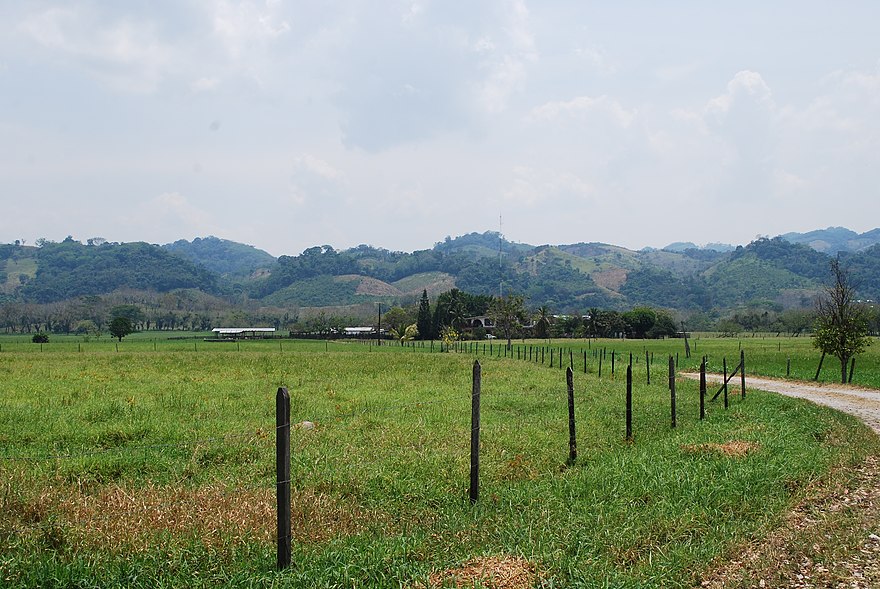
https://thereaderwiki.com/en/Chiapas (includes Creative Commons copyright notice)
人生の親戚 Echo of Heaven (Relatives in Life)
Flannery O'Connor's "mystery" and "manners" (Chpt 10, English 167)
In O’Connor’s experience, teachers often fell short of helping students see that the "business of fiction [is] to embody mystery through manners, and mystery is a great embarrassment to the modern mind."" Her words were a Southern, Irish-Catholic take on a phrase from The Ivory Tower, an unfinished novel by Henry James. For O’Connor, "the mystery he was talking about is the mystery of our position on earth, and the manners are those conventions which, in the hands of the artist, reveal that central mystery.""
Ripatrazone, “Mystery and Manners: On Teaching Flannery O’Connor,” The Millions (blog), June 30, 2014, https://themillions.com/2014/06/mystery-and-manners-on-teaching-flannery-oconnor.html.
人生の親戚 Echo of Heaven (Relatives in Life)
"Dream of a Sunday Afternoon on the Alameda" (Chpt 10, English 168)
See above, at page 162.
人生の親戚 Echo of Heaven (Relatives in Life)
"The Virgin of Guadalupe" (Chpt 10, English 170)
Manuel de Arellano's Virgin of Guadalupe (Virgen de Guadalupe): https://upload.wikimedia.org/wikipedia/commons/a/ad/Manuel_de_Arellano_-_Virgin_of_Guadalupe_%28Virgen_de_Guadalupe%29_-_Google_Art_Project.jpg
人生の親戚 Echo of Heaven (Relatives in Life)
"like the sky in an El Greco painting" (Chpt 10, English 172)
See, for example his "View of Toledo" here (or search on your own): http://www.sedefscorner.com/2012/03/view-of-toledo.html
人生の親戚 Echo of Heaven (Relatives in Life)
"Plato's regio dismultitudenis" (Chpt 10, English 172)
In the original: 神話的な異界 ("mythical different/alien world") which indeed differs from the earlier 「異なっている世界」 (it uses the brackets, "'world that is different/alien'") which has been the consistent term and consistently translated as "regio disimilitudenis" but nevertheless this appears to be a typographical error for "regio disimilitudenis" since as far as I can tell "dismultitudenis" is not a Platonic word.
— CHAPTER 11 —
人生の親戚 Echo of Heaven (Relatives in Life)
[Marie:] "Even if it's about me, what K writes will be his own story, one acceptable to him—it's only natural, isn't it?" (Chpt 11, English 187)
Since this is a key phrase, I include the Japanese here: 「Kさんは、私についても、自分の物語として了解できるように書くわ、当然のことながら?!」
— CHAPTER: In lieu of an epilogue —
人生の親戚 Echo of Heaven (Relatives in Life)
"8 on the Gaffky scale" (In lieu of an Epilogue, English 197)
Also, the Gaffky scale mentioned on page 197 is a numerical measure from G0 to G9 of the amount of tuberculosis bacteria in one's phlegm that is not used anymore, because the amount varies based on factors such as where the sample is taken from and how deep a smear is taken. The source I used was at http://www.jata.or.jp/terminology/k_9.html.

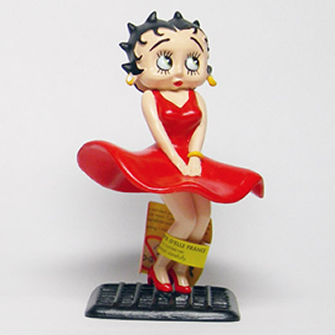
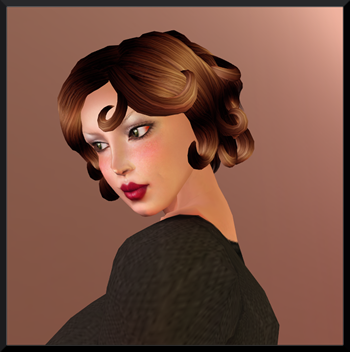

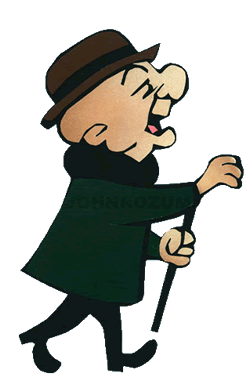
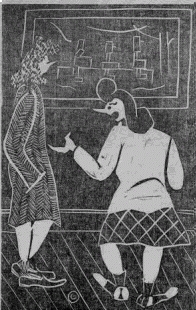
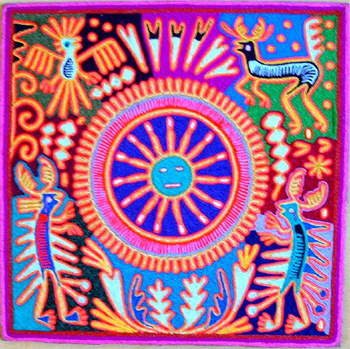
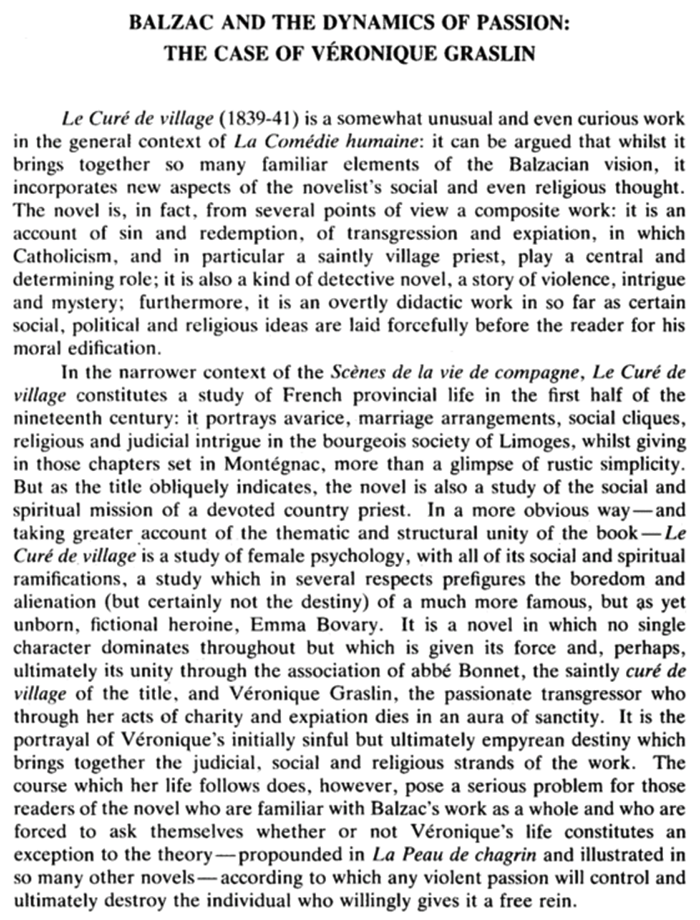
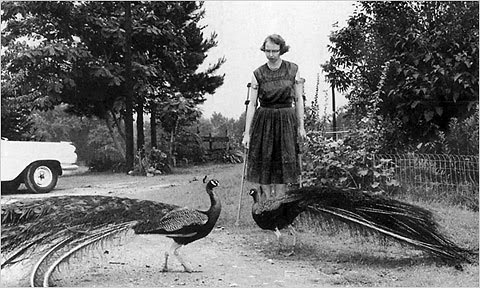
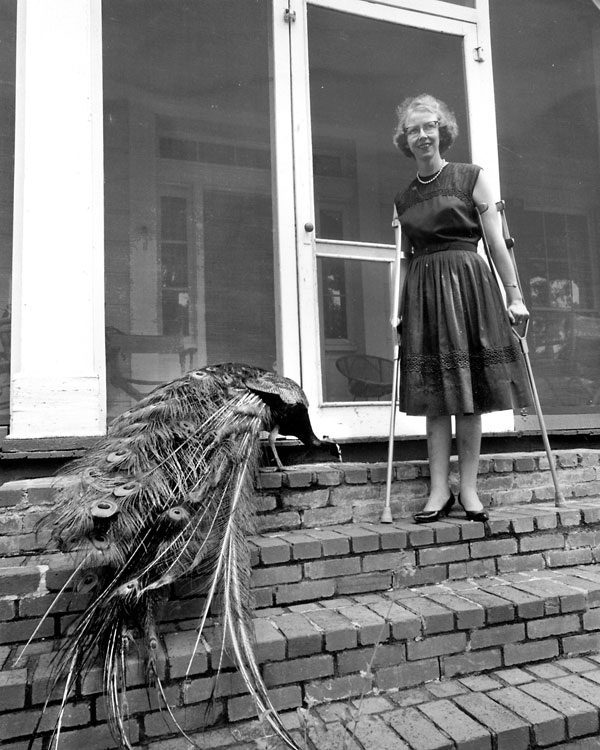
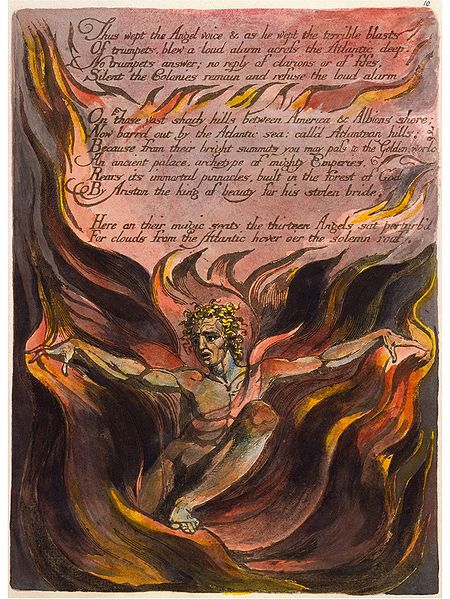




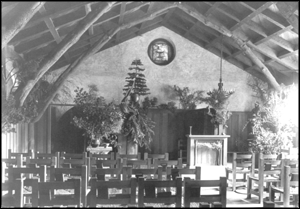
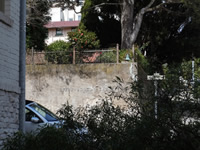
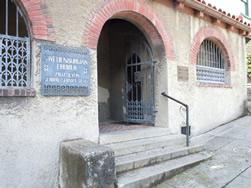
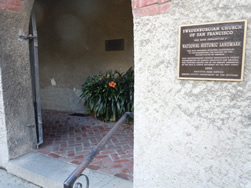
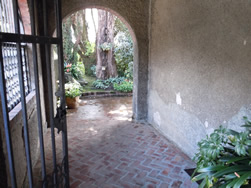
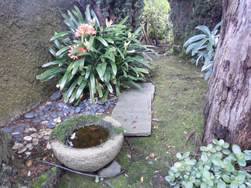

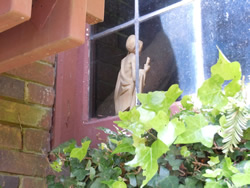
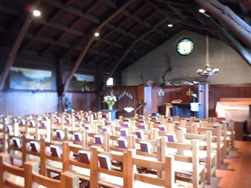
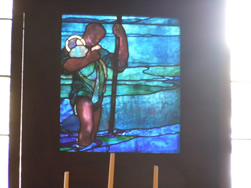
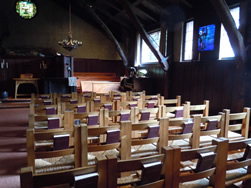
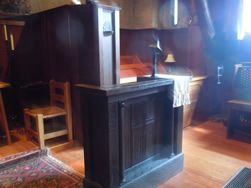
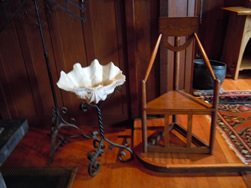
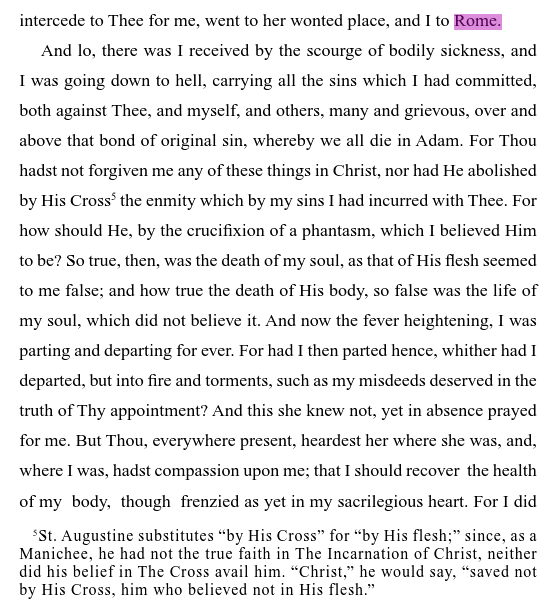
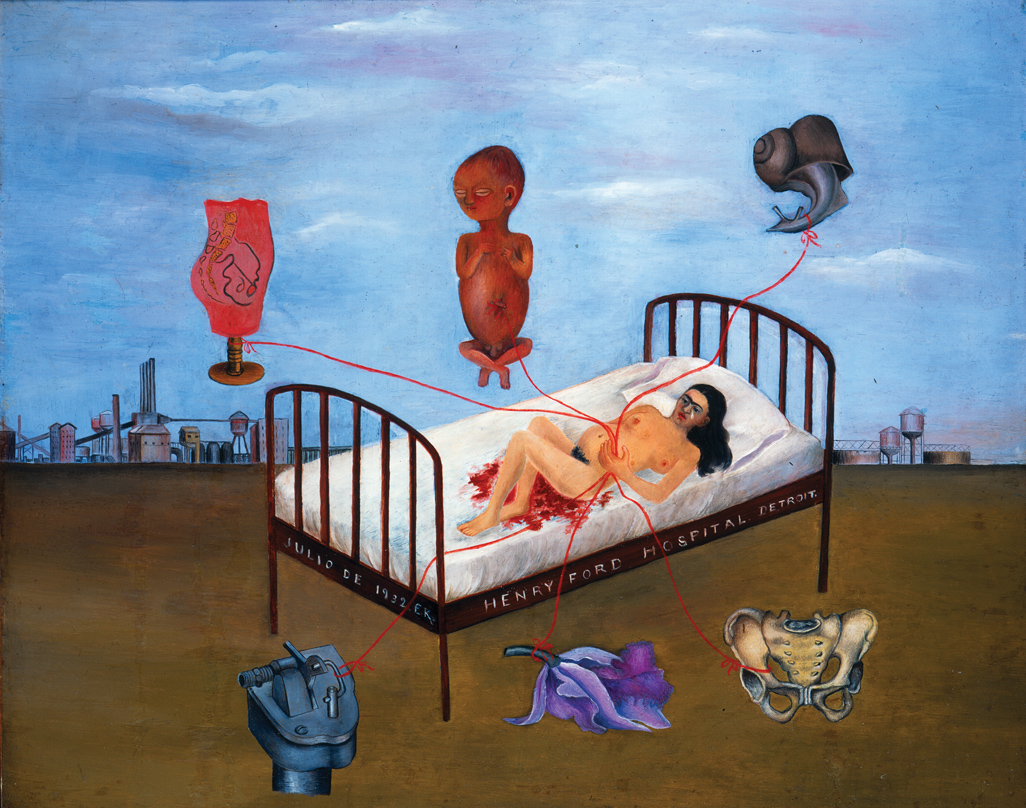
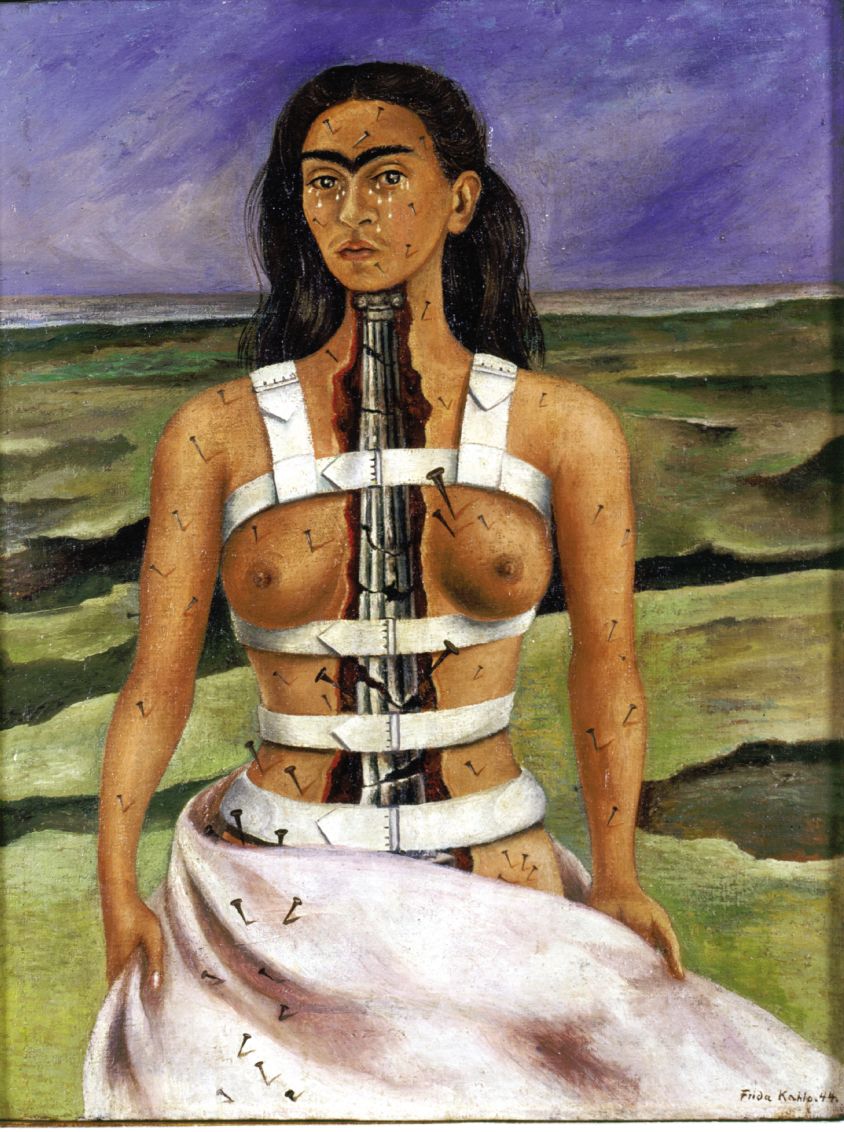
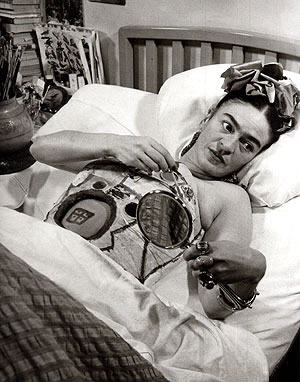

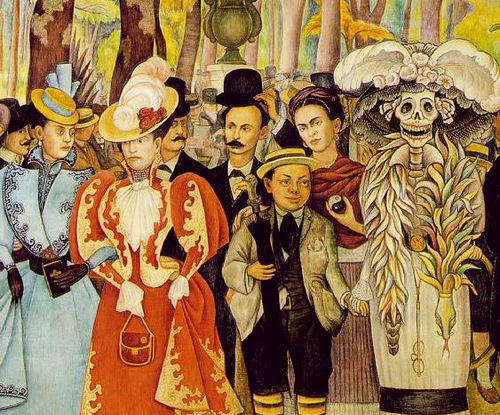
.svg.png)